The 50 Best Cover Songs of the 2020s So Far
Photos by Kim Black, Josh Druding, Nick Futch & Derek Henderson
To close out our mid-decade coverage here at Paste, we thought we’d take a look at the best cover songs of the last 4.5 years. There have been quite a number of projects that have championed the art of a good cover song, from Metallica’s massive Black Album tribute to A24’s Talking Heads-centric Everybody’s Getting Involved compilation. And, elsewhere, more and more artists are stepping out of their comfort zones and delivering one-of-a-kind, nuanced takes of modern and age-old classics. Whether it’s Al Green singing Lou Reed or Blondshell covering Samia, this decade has broken open the floodgates for artists exploring each other’s styles. Here are our picks for the 50 best cover songs of the 2020s so far, picked by the Paste staff. All of the songs featured were released between January 1, 2020 and November 1, 2024. —Matt Mitchell, Music Editor
Honorable Mention: Angel Olsen & Hand Habits: “Walls” (2020)
Because I chose to fill this list with songs that are available on streaming services, my true pick for the best cover of the 2020s will simply just have to exist here, as an honorable mention. During the pandemic’s first summer four years ago, Angel Olsen and Hand Habits came together in an empty auditorium and performed a serenade of Tom Petty’s all-time great track, “Walls.” To this day, the performance sends me to a dimension very few songs ever have. It’s so brilliant and sweet that I prefer it being accessible exclusively on YouTube—a song so perfect deserves to be held preciously, and we ought to make an effort to hear it every time our hearts and ears yearn to be nurtured by Olsen and M. Duffy’s duet. —Matt Mitchell
50. Nation of Language: “Androgynous” (2022)
 The Replacements’ “Androgynous,” off their beloved 1984 album Let It Be, has rightly been hailed for its refreshingly progressive look at the love between two genderqueer people: “Dick, he’s wearing a skirt” and “Jane, y’know she’s sporting a chain.” Nation of Language’s cover of the song, released nearly 40 years later, is at once a reminder of how far we’ve come in the decades since and how far we unfortunately still have left to go. While gender non-conforming people have slightly more visibility in our society, they are doggedly targeted by small-minded bigots for merely wanting a safe and secure existence. Nation of Language evoke the rebellious beauty found in the “Androgynous,” trading in the original’s jaunty piano for alien synths and a neon brightness. Lead singer Ian Devaney’s voice is heartbreakingly hopeful as he praises love that refuses to be confined by the strictures of gender norms: “They both look the same / They’re overjoyed in this world / Same hair, revolution / Unisex evolution.” —Clare Martin
The Replacements’ “Androgynous,” off their beloved 1984 album Let It Be, has rightly been hailed for its refreshingly progressive look at the love between two genderqueer people: “Dick, he’s wearing a skirt” and “Jane, y’know she’s sporting a chain.” Nation of Language’s cover of the song, released nearly 40 years later, is at once a reminder of how far we’ve come in the decades since and how far we unfortunately still have left to go. While gender non-conforming people have slightly more visibility in our society, they are doggedly targeted by small-minded bigots for merely wanting a safe and secure existence. Nation of Language evoke the rebellious beauty found in the “Androgynous,” trading in the original’s jaunty piano for alien synths and a neon brightness. Lead singer Ian Devaney’s voice is heartbreakingly hopeful as he praises love that refuses to be confined by the strictures of gender norms: “They both look the same / They’re overjoyed in this world / Same hair, revolution / Unisex evolution.” —Clare Martin
49. Gillian Welch & David Rawlings: “Hello in There” (2020)
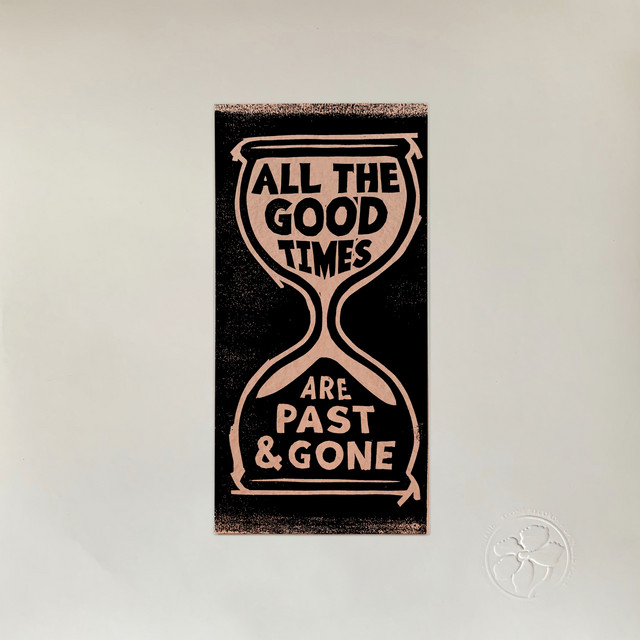 When considering a faithful cover song done so well you can’t help but return to it more often than you do to its source material, few instances are as rewarding as Gillian Welch and David Rawling’s cover of John Prine’s “Hello in There,” which they released on their 2020 album All the Good Times. This performance in particular reminds me of the few mid-pandemic glimmers we all were afforded. I think about the closeness we may have shared with our loved ones when we had no place else to go. For me, Prine is king and few have ever done his work justice. But, then again, very few voices in this world are like Welch’s. Her guidance on “Hello in There” is a salve I wouldn’t trade for anybody else’s. —Matt Mitchell
When considering a faithful cover song done so well you can’t help but return to it more often than you do to its source material, few instances are as rewarding as Gillian Welch and David Rawling’s cover of John Prine’s “Hello in There,” which they released on their 2020 album All the Good Times. This performance in particular reminds me of the few mid-pandemic glimmers we all were afforded. I think about the closeness we may have shared with our loved ones when we had no place else to go. For me, Prine is king and few have ever done his work justice. But, then again, very few voices in this world are like Welch’s. Her guidance on “Hello in There” is a salve I wouldn’t trade for anybody else’s. —Matt Mitchell
48. Nilüfer Yanya: “rid of me” (2022)
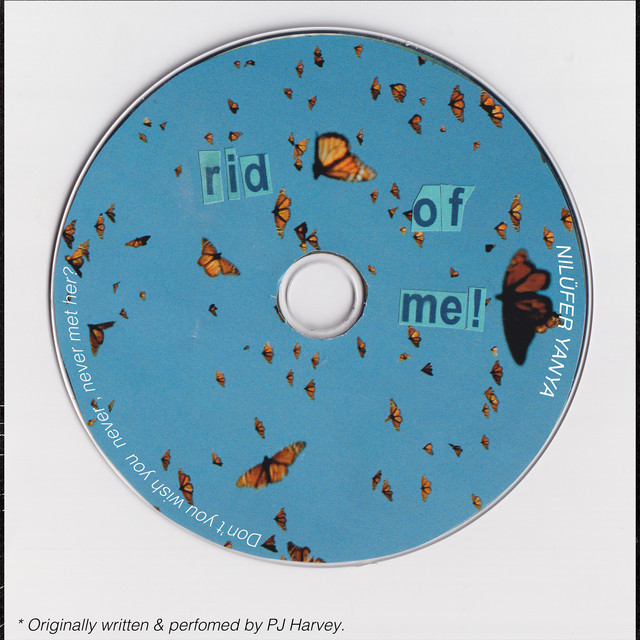 Now, I don’t think anyone should be covering PJ Harvey’s music—as a rule of thumb. I’m just not quite sure there’s another musician who could channel Harvey’s haunted masterpiece properly. But, then again, Nilüfer Yanya might just be the only person to successfully break through. Her 2022 cover of “Rid of Me” emphasizes what she considers to be a rather romantic energy that swirls below the surface of Harvey’s original. “I’ll make you lick my injuries, I’m gonna twist your head off, see” becomes less grievous and more sensual, though the menacing aura of both Nilüfer’s take and Harvey’s remain. It’s a matter of language and control and intent, and Nilüfer made “Rid of Me” a battlecry of her own. —Matt Mitchell
Now, I don’t think anyone should be covering PJ Harvey’s music—as a rule of thumb. I’m just not quite sure there’s another musician who could channel Harvey’s haunted masterpiece properly. But, then again, Nilüfer Yanya might just be the only person to successfully break through. Her 2022 cover of “Rid of Me” emphasizes what she considers to be a rather romantic energy that swirls below the surface of Harvey’s original. “I’ll make you lick my injuries, I’m gonna twist your head off, see” becomes less grievous and more sensual, though the menacing aura of both Nilüfer’s take and Harvey’s remain. It’s a matter of language and control and intent, and Nilüfer made “Rid of Me” a battlecry of her own. —Matt Mitchell
47. Cat Power: “Against the Wind” (2022)
 I dearly appreciate Cat Power, if only because Chan Marshall is the only musician alive who can make anybody’s song her own. Beginning with “Sea of Love” in the 2000s, Marshall established herself as the best cover artist in the game (her own material is pretty unbelievable, too)—releasing an album-length cover of Bob Dylan’s Royal Albert Hall concert just last year. In 2022, she made her Covers compilation and interpreted works by the Replacements, Jackson Browne/Nico and Frank Ocean. But it’s her cover of Bob Seger’s “Against the Wind” that best sticks the landing. It sounds incredibly Cat Power, taking a rock ballad classic and transforming it into a towering, gothic song. Marshall’s voice echoes and haunts, unraveling the gentleness of Seger’s original sound and fashioning it into a sultry, jolting ace of big reckonings and hazy, lounge singer finesse. —Matt Mitchell
I dearly appreciate Cat Power, if only because Chan Marshall is the only musician alive who can make anybody’s song her own. Beginning with “Sea of Love” in the 2000s, Marshall established herself as the best cover artist in the game (her own material is pretty unbelievable, too)—releasing an album-length cover of Bob Dylan’s Royal Albert Hall concert just last year. In 2022, she made her Covers compilation and interpreted works by the Replacements, Jackson Browne/Nico and Frank Ocean. But it’s her cover of Bob Seger’s “Against the Wind” that best sticks the landing. It sounds incredibly Cat Power, taking a rock ballad classic and transforming it into a towering, gothic song. Marshall’s voice echoes and haunts, unraveling the gentleness of Seger’s original sound and fashioning it into a sultry, jolting ace of big reckonings and hazy, lounge singer finesse. —Matt Mitchell
46. Vashti Bunyan & Devendra Banhart: “How Could You Let Me Go” (2023)
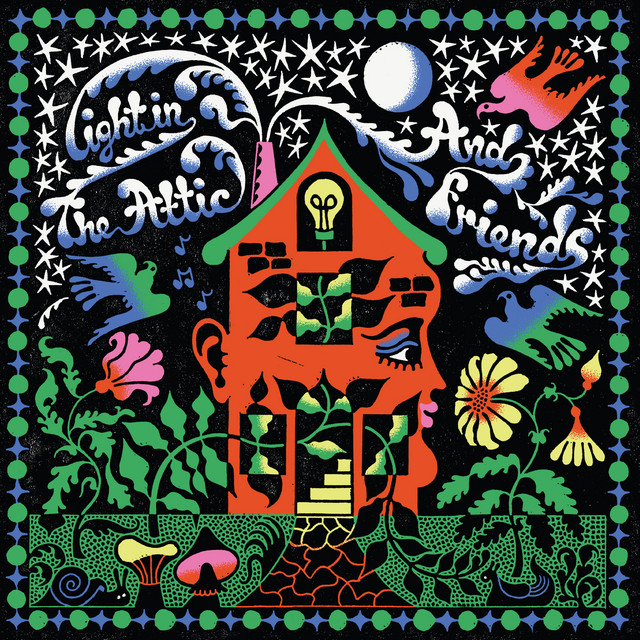 Before releasing Lookaftering in 2005, English folk singer Vashti Bunyan returned to the studio in 2004 and sang a duet—“Rejoicing in the Hands”—with Devendra Banhart, who was just a young fan of hers trying to make a name for himself. Now, nearly 20 years later, she and Banhart reconvened to cover “How Could You Let Me Go,” a tune first written and recorded by Madelynn Von Ritz—an obscure folk singer who was a barber in 1960s Los Angeles under the name Lynn Castle. “How Could You Let Me Go” is one of the prettiest songs I’ve heard this year, and Banhart and Bunyan were meant to sing duets together. I just hope we don’t have to go another 20 years to hear the next one. —Matt Mitchell
Before releasing Lookaftering in 2005, English folk singer Vashti Bunyan returned to the studio in 2004 and sang a duet—“Rejoicing in the Hands”—with Devendra Banhart, who was just a young fan of hers trying to make a name for himself. Now, nearly 20 years later, she and Banhart reconvened to cover “How Could You Let Me Go,” a tune first written and recorded by Madelynn Von Ritz—an obscure folk singer who was a barber in 1960s Los Angeles under the name Lynn Castle. “How Could You Let Me Go” is one of the prettiest songs I’ve heard this year, and Banhart and Bunyan were meant to sing duets together. I just hope we don’t have to go another 20 years to hear the next one. —Matt Mitchell
45. black midi: “Love Story” (2022)
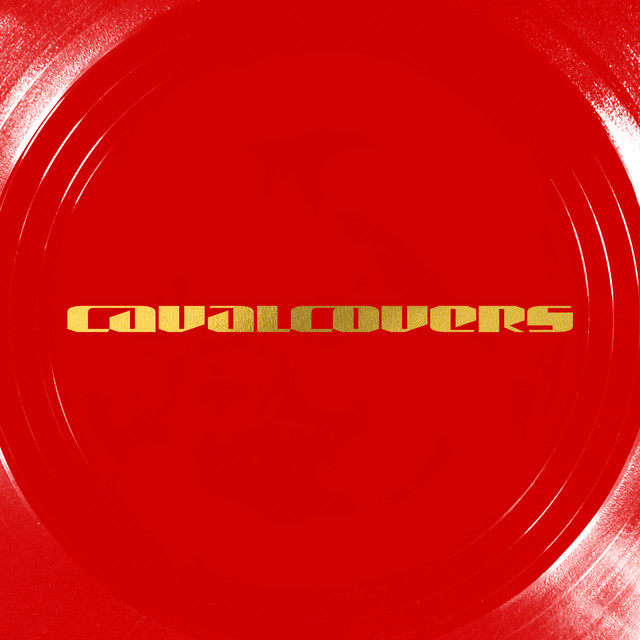 The first time I went out of my way to listen to Taylor Swift’s “Love Story” was in middle school, after we read a so-called “children’s version” of Romeo and Juliet and a girl named Kayleigh complained to our teacher that it didn’t make sense that the titular star-crossed lovers died in the Bard’s tale because they didn’t in Swift’s song. The second time I went out of my way to listen to “Love Story” was in March of 2022, when black midi released their Cavalcovers EP and finally made the fan-voted cover available to those of us losers who didn’t pre-order their album Cavalcade on vinyl, which included a bonus gift in the form of a Flexi Disc of cover songs. The band’s performance of “Love Story” is certainly one of the English rock group’s more accessible songs, with vocals from Cameron Picton instead of Geordie Greep and his famously indescribable muppet-like croon, but it’s utterly successful; it turns Swift’s classic country-pop ballad into a Springsteenian rocker, except with the saxophone turned up to eleven. From Kaidi Akinnibi’s riotous sax to the legitimate emotionality in Picton’s cries of “Marry me, Juliet” to the distortion-heavy guitar riffs and energetic drumline, black midi’s “Love Story” is, simply put, just a good time. The instrumentation is swallowed into a hush during the final verse, allowing a quieter restraint from Picton to take center stage, only for all to immediately swell in tandem as the track crashes into its last lap around the chorus, taking the key change in stride and adding some spacey synth to boot. It’s unapologetically goofy and fun, but never crosses the threshold into mockery or disdain towards the original—despite the vast differences between Swift and black midi, from their music to their audiences, the latter manages to pay serious homage in covering the former, even as they overhaul it entirely. (Now we just need Swift to cover “John L”—or for black midi to get back together. That too.) —Casey Epstein-Gross
The first time I went out of my way to listen to Taylor Swift’s “Love Story” was in middle school, after we read a so-called “children’s version” of Romeo and Juliet and a girl named Kayleigh complained to our teacher that it didn’t make sense that the titular star-crossed lovers died in the Bard’s tale because they didn’t in Swift’s song. The second time I went out of my way to listen to “Love Story” was in March of 2022, when black midi released their Cavalcovers EP and finally made the fan-voted cover available to those of us losers who didn’t pre-order their album Cavalcade on vinyl, which included a bonus gift in the form of a Flexi Disc of cover songs. The band’s performance of “Love Story” is certainly one of the English rock group’s more accessible songs, with vocals from Cameron Picton instead of Geordie Greep and his famously indescribable muppet-like croon, but it’s utterly successful; it turns Swift’s classic country-pop ballad into a Springsteenian rocker, except with the saxophone turned up to eleven. From Kaidi Akinnibi’s riotous sax to the legitimate emotionality in Picton’s cries of “Marry me, Juliet” to the distortion-heavy guitar riffs and energetic drumline, black midi’s “Love Story” is, simply put, just a good time. The instrumentation is swallowed into a hush during the final verse, allowing a quieter restraint from Picton to take center stage, only for all to immediately swell in tandem as the track crashes into its last lap around the chorus, taking the key change in stride and adding some spacey synth to boot. It’s unapologetically goofy and fun, but never crosses the threshold into mockery or disdain towards the original—despite the vast differences between Swift and black midi, from their music to their audiences, the latter manages to pay serious homage in covering the former, even as they overhaul it entirely. (Now we just need Swift to cover “John L”—or for black midi to get back together. That too.) —Casey Epstein-Gross
44. Midwife: “Send the Pain Below” (2022)
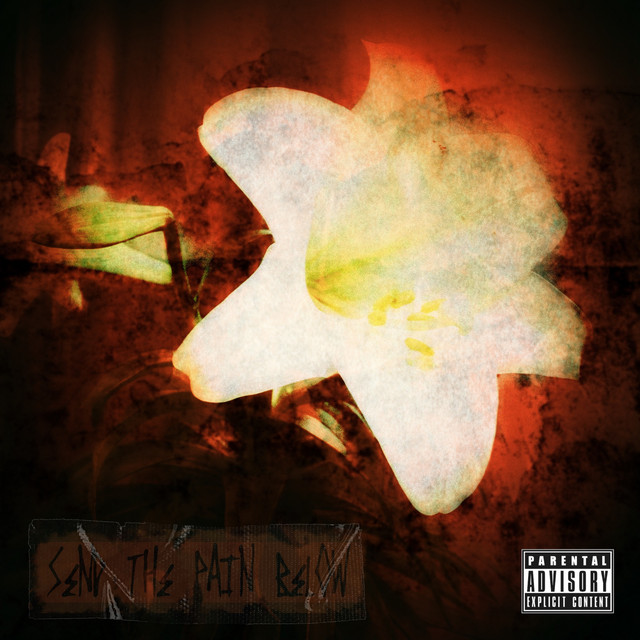 Some combinations just make too much sense, and I’d file Midwife’s cover of Chevelle’s “Send the Pain Below” under that assertion. Released in 2022, right after she made a record called Luminol, Madeline Johnston gives Chevelle’s 2003 hit song one of her “heaven metal” makeovers, and it sounds so spectral and crushing. Any notes of grunge are lost in Midwife’s focus, as Johnston instead crafts “Send the Pain Below” into a whisper of sustain. It sounds like an echo chamber I wouldn’t mind losing myself in. —Matt Mitchell
Some combinations just make too much sense, and I’d file Midwife’s cover of Chevelle’s “Send the Pain Below” under that assertion. Released in 2022, right after she made a record called Luminol, Madeline Johnston gives Chevelle’s 2003 hit song one of her “heaven metal” makeovers, and it sounds so spectral and crushing. Any notes of grunge are lost in Midwife’s focus, as Johnston instead crafts “Send the Pain Below” into a whisper of sustain. It sounds like an echo chamber I wouldn’t mind losing myself in. —Matt Mitchell
43. Beyoncé: “BLACKBIIRD” (2024)
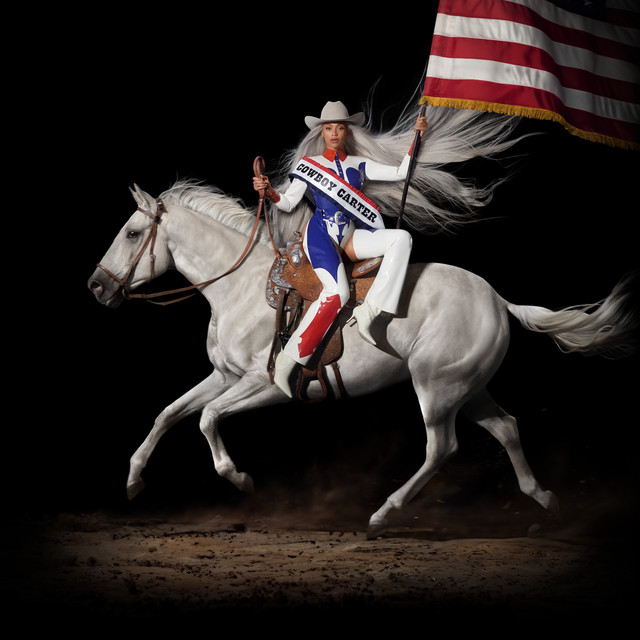 In terms of quantity, the world probably doesn’t need any more Beatles covers anytime soon. But, in terms of quality, it’s hard to argue against Beyoncé’s take on “Blackbird”—stylizing it as “BLACKBIIRD” on her new album, COWBOY CARTER and performing it with Tanner Adell, Brittney Spencer, Tiera Kennedy and Reyna Roberts. Paul McCartney, who wrote “Blackbird” in the summer of 1968 as the Civil Rights Movement continued on in the States, co-signed Beyoncé’s cover, and her reinforcement of McCartney’s original intentions behind the song. For as big as Beyoncé’s voice is, she softens it up on “BLACKBIIRD” and uses the original Beatles backing track in her version, pairing modernity with tradition in a symphonic, splendid way. —Matt Mitchell
In terms of quantity, the world probably doesn’t need any more Beatles covers anytime soon. But, in terms of quality, it’s hard to argue against Beyoncé’s take on “Blackbird”—stylizing it as “BLACKBIIRD” on her new album, COWBOY CARTER and performing it with Tanner Adell, Brittney Spencer, Tiera Kennedy and Reyna Roberts. Paul McCartney, who wrote “Blackbird” in the summer of 1968 as the Civil Rights Movement continued on in the States, co-signed Beyoncé’s cover, and her reinforcement of McCartney’s original intentions behind the song. For as big as Beyoncé’s voice is, she softens it up on “BLACKBIIRD” and uses the original Beatles backing track in her version, pairing modernity with tradition in a symphonic, splendid way. —Matt Mitchell
42. My Morning Jacket: “Nothing Else Matters” (2021)
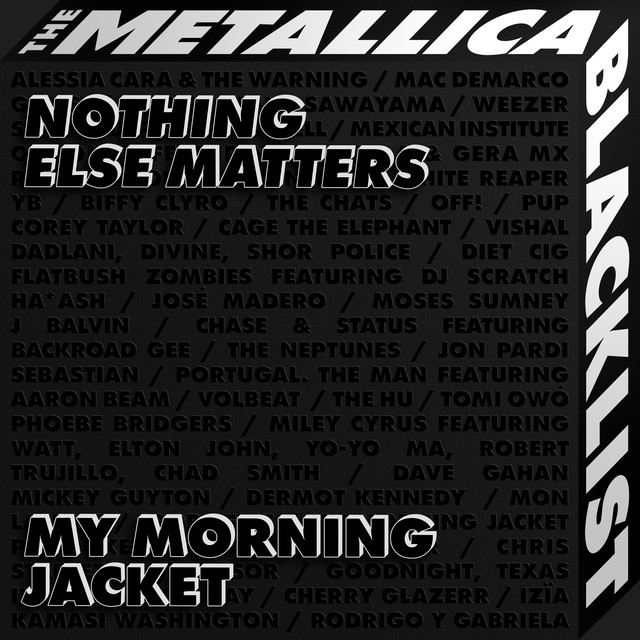 Back in 2021, Metallica put out an LP of other artists covering songs off The Black Album for its 30th anniversary. The project featured everyone from Elton John to Weezer, Kamasi Washington, PUP, Miley Cyrus and Moses Sumney. Not everyone can tap into the Metallica state of mind as well as others, which is why the biggest highlight from the record is still My Morning Jacket’s take on “Nothing Else Matters.” With the Kentucky quintet’s penchant for experimental, country-tinged psychedelia, “Nothing Else Matters” sounds like their own original composition. There are hardly any similarities to trace here, as Jim James, Carl Broemel and co. ride the lightning of their own glossy, eccentric magic—translating a metal classic into a jammy rock ‘n’ roll masterpiece. —Matt Mitchell
Back in 2021, Metallica put out an LP of other artists covering songs off The Black Album for its 30th anniversary. The project featured everyone from Elton John to Weezer, Kamasi Washington, PUP, Miley Cyrus and Moses Sumney. Not everyone can tap into the Metallica state of mind as well as others, which is why the biggest highlight from the record is still My Morning Jacket’s take on “Nothing Else Matters.” With the Kentucky quintet’s penchant for experimental, country-tinged psychedelia, “Nothing Else Matters” sounds like their own original composition. There are hardly any similarities to trace here, as Jim James, Carl Broemel and co. ride the lightning of their own glossy, eccentric magic—translating a metal classic into a jammy rock ‘n’ roll masterpiece. —Matt Mitchell
41. Squid: “America!” (2021)
 I’m re-listening to this cover on Election Day—and it’s really emphasizing the cynical, eerie feel of the English post-punk band’s take on what was meant to be a multifaceted love letter from the American singer-songwriter Bill Callahan to his country. Squid recorded this cover in anticipation for their first U.S. tour in 2021, transforming Callahan’s reckoning with patriotism and America’s complicated past into something more ominous and challenging. To outsiders, all of America’s wounds are out in the open, and vocalist Ollie Judge’s sardonic tone drips irony into them instead of forgiveness and empathy. “Everyone’s allowed a past they don’t care to mention.” In Callahan’s version this lyric sounds like a justification, but in Squid’s world—it sounds investigatory. The song lends itself well to Squid’s type of post-punk—pulsing electro-drums, clashing guitars, off-kilter bass taps and Judge’s unsettling, waving voice as he seems to fantasize about the next flight to the U.S.A. There is this sense of curiosity from the band, as listing off American icons such as David Letterman and naming Kris Kristofferson by his captain title ignites a slight gleam of wonder and awe into the track. But, as Callahan told Mother Jones in a 2011 interview, America is more than an individual: “You share your country with other people, so it’s not a possession.” Maybe it’s the election air, but Squid’s version of “America!” sounds like a downward-spiral-level warning of what could happen if we forget that statement again. —Alli Dempsey
I’m re-listening to this cover on Election Day—and it’s really emphasizing the cynical, eerie feel of the English post-punk band’s take on what was meant to be a multifaceted love letter from the American singer-songwriter Bill Callahan to his country. Squid recorded this cover in anticipation for their first U.S. tour in 2021, transforming Callahan’s reckoning with patriotism and America’s complicated past into something more ominous and challenging. To outsiders, all of America’s wounds are out in the open, and vocalist Ollie Judge’s sardonic tone drips irony into them instead of forgiveness and empathy. “Everyone’s allowed a past they don’t care to mention.” In Callahan’s version this lyric sounds like a justification, but in Squid’s world—it sounds investigatory. The song lends itself well to Squid’s type of post-punk—pulsing electro-drums, clashing guitars, off-kilter bass taps and Judge’s unsettling, waving voice as he seems to fantasize about the next flight to the U.S.A. There is this sense of curiosity from the band, as listing off American icons such as David Letterman and naming Kris Kristofferson by his captain title ignites a slight gleam of wonder and awe into the track. But, as Callahan told Mother Jones in a 2011 interview, America is more than an individual: “You share your country with other people, so it’s not a possession.” Maybe it’s the election air, but Squid’s version of “America!” sounds like a downward-spiral-level warning of what could happen if we forget that statement again. —Alli Dempsey
40. Ducks Ltd. ft. illuminati hotties: “Head On” (2022)
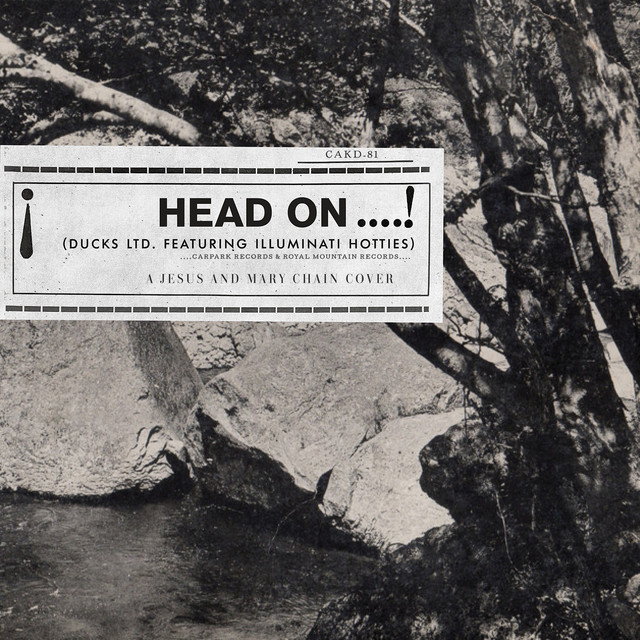 In 2022 and 2023, Ducks Ltd. prepared for the release of their 2024 album Harm’s Way by unloading a no-fuss crop of cover songs—including the Feelies’ “Invitation” and the Cure’s “In Between Days.” The standout effort in all of this, however, is the Toronto-Philadelphia duo’s take on the Jesus and Mary Chain’s “Head On,” which includes vocal harmonies from illuminati hotties’ Sarah Tudzin. It’s a post-punk balm warmed by Ducks Ltd.’s perfect jangle-pop sound. Tom McGreevy’s singing meshes well with Tudzin’s, and together dress up the Jesus and Mary Chain’s best song in a new, contemporary outfit. I love every second of it. —Matt Mitchell
In 2022 and 2023, Ducks Ltd. prepared for the release of their 2024 album Harm’s Way by unloading a no-fuss crop of cover songs—including the Feelies’ “Invitation” and the Cure’s “In Between Days.” The standout effort in all of this, however, is the Toronto-Philadelphia duo’s take on the Jesus and Mary Chain’s “Head On,” which includes vocal harmonies from illuminati hotties’ Sarah Tudzin. It’s a post-punk balm warmed by Ducks Ltd.’s perfect jangle-pop sound. Tom McGreevy’s singing meshes well with Tudzin’s, and together dress up the Jesus and Mary Chain’s best song in a new, contemporary outfit. I love every second of it. —Matt Mitchell
39. Carson McHone: “I Couldn’t Say It To Your Face” (2024)
 I would wager that Arthur Russell is just as influential on this modern crop of singer-songwriters as Elliott Smith, and Carson McHone’s cover of “I Couldn’t Say It To Your Face” proves that. McHone, who’s been touring consistently with the Daniel Romano Outfit in the two years since dropping her Merge Records debut, Still Life, makes Russell’s gem her own. The way she sings “It’s my world, it’s my song, didn’t ask you to sing along” is an especially powerful delivery, as if her take on the song is as much an act of reclamation as it is an act of empowerment. McHone’s vocal soars without flaw even in the challenge of Russell’s music, shining beyond and pulling you in close. —Matt Mitchell
I would wager that Arthur Russell is just as influential on this modern crop of singer-songwriters as Elliott Smith, and Carson McHone’s cover of “I Couldn’t Say It To Your Face” proves that. McHone, who’s been touring consistently with the Daniel Romano Outfit in the two years since dropping her Merge Records debut, Still Life, makes Russell’s gem her own. The way she sings “It’s my world, it’s my song, didn’t ask you to sing along” is an especially powerful delivery, as if her take on the song is as much an act of reclamation as it is an act of empowerment. McHone’s vocal soars without flaw even in the challenge of Russell’s music, shining beyond and pulling you in close. —Matt Mitchell
38. The Reds, Pinks and Purples: “Did you know there’s a tunnel under Ocean Blvd” (2023)
 I did not know that there is a tunnel under Ocean Blvd (or where Ocean Blvd is) when I first heard “Did you know that there’s a tunnel under Ocean Blvd.” I also did not know that it was a cover. I heard the Reds, Pinks and Purples’ version first, and for about three weeks just assumed it was a Glenn Donaldson original. Musically, lyrically, and conceptually it fits so well with his own material, and obviously his performance too, with a breathy yearning restrained by experience and repeated disappointment. Some of Donaldson’s best songs are sad, often funny sketches of financially unsuccessful musicians who never got the recognition or acclaim they were hoping for, and Lana Del Rey’s lyrics, full of insecurity and fear of being forgotten, evoke the same feelings. I don’t know if I’ve heard the original yet, but Donaldson makes it sound like something that could’ve been released on Sarah Records and raved about in zines and by college radio DJs in the early ‘90s. —Garrett Martin
I did not know that there is a tunnel under Ocean Blvd (or where Ocean Blvd is) when I first heard “Did you know that there’s a tunnel under Ocean Blvd.” I also did not know that it was a cover. I heard the Reds, Pinks and Purples’ version first, and for about three weeks just assumed it was a Glenn Donaldson original. Musically, lyrically, and conceptually it fits so well with his own material, and obviously his performance too, with a breathy yearning restrained by experience and repeated disappointment. Some of Donaldson’s best songs are sad, often funny sketches of financially unsuccessful musicians who never got the recognition or acclaim they were hoping for, and Lana Del Rey’s lyrics, full of insecurity and fear of being forgotten, evoke the same feelings. I don’t know if I’ve heard the original yet, but Donaldson makes it sound like something that could’ve been released on Sarah Records and raved about in zines and by college radio DJs in the early ‘90s. —Garrett Martin
37. Cyrus Nabipoor: “Jóga” (2023)
 Cyrus Nabipoor may be merely one of the stars in the vast constellation that is the Portland jazz community but lately he’s been shining brighter than most. His fluid, flexible playing and sharp trumpet tone has kept him busy as a go-to sideman and session player while leading his own ensembles that tackle everything from traditional New Orleans style jazz to the more modern take that folds in the influences of hip-hop and electronic music. The first single from Nabipoor’s solo debut In Lieu of Tears falls into that latter category. A cover of a fan favorite of Icelandic icon Björk, the tune is gently cracked open by Nabipoor’s driving playing and the thunderhead breadth of his backing band. The downpour and lightning strikes within the song still feel shocking no matter how many times I spin this one. —Robert Ham
Cyrus Nabipoor may be merely one of the stars in the vast constellation that is the Portland jazz community but lately he’s been shining brighter than most. His fluid, flexible playing and sharp trumpet tone has kept him busy as a go-to sideman and session player while leading his own ensembles that tackle everything from traditional New Orleans style jazz to the more modern take that folds in the influences of hip-hop and electronic music. The first single from Nabipoor’s solo debut In Lieu of Tears falls into that latter category. A cover of a fan favorite of Icelandic icon Björk, the tune is gently cracked open by Nabipoor’s driving playing and the thunderhead breadth of his backing band. The downpour and lightning strikes within the song still feel shocking no matter how many times I spin this one. —Robert Ham
36. Hinds: “Spanish Bombs” (2020)
 Between being based in Madrid and guitarist/vocalist Carlotta Cosials’ mother loving The Clash, Iberian indie rockers Hinds were probably destined to cover the English rockers’ classic tune “Spanish Bombs.” It’s always been a song of juxtapositions. The sunny chords of the original punk song contrast starkly with morbid remembrances of the Spanish Civil War and then-contemporary observations about attacks carried out by the Provisional Irish Republican Army: “Back home the buses went up in flashes / The Irish tomb was drenched in blood / Spanish bombs shatter the hotels / My señorita’s rose was nipped in the bud.” Over 20 years later, Hinds released their version, which injected even more moxie thanks to their scrappy, lo-fi sound and bratty, sing-sung delivery. Their lightness and exuberance here is thanks largely to the intervening years; as wounds heal, or at the very least smart less, “Spanish Bombs” has transformed from a politically charged song to a classic that bands like Hinds can reimagine on their own terms. —Clare Martin
Between being based in Madrid and guitarist/vocalist Carlotta Cosials’ mother loving The Clash, Iberian indie rockers Hinds were probably destined to cover the English rockers’ classic tune “Spanish Bombs.” It’s always been a song of juxtapositions. The sunny chords of the original punk song contrast starkly with morbid remembrances of the Spanish Civil War and then-contemporary observations about attacks carried out by the Provisional Irish Republican Army: “Back home the buses went up in flashes / The Irish tomb was drenched in blood / Spanish bombs shatter the hotels / My señorita’s rose was nipped in the bud.” Over 20 years later, Hinds released their version, which injected even more moxie thanks to their scrappy, lo-fi sound and bratty, sing-sung delivery. Their lightness and exuberance here is thanks largely to the intervening years; as wounds heal, or at the very least smart less, “Spanish Bombs” has transformed from a politically charged song to a classic that bands like Hinds can reimagine on their own terms. —Clare Martin
35. Mary Lattimore: “Blink” (2023)
 Earlier in 2023, harpist Mary Lattimore released Goodbye, Hotel Arkada—a record that, for my money, gets the award for the most underrated project of the year. But, on the same day André 3000 released New Blue Sun, Lattimore put out her own feel-good instrumental. “Blink” was originally composed by the late Japanese ambient hero Hiroshi Yoshimura, and Lattimore manages to put her own spin on an already perfect composition—a feat that is as rare as it is challenging. “Blink” appears on the Light in the Attic & Friends compilation (and is not the only entry from that comp on this list), and it showcases a celebration of Yoshimura’s steadfast ability to make a cosmos out of a Fender Rhodes and synthesizers. Lattimore lends her harp to the arrangement, removing the digitized garnish with atmospheric strings plucked ever so delicately. It’s the epitome of a song built to last simply for how easy it is to listen to it 10 times in a row. —Matt Mitchell
Earlier in 2023, harpist Mary Lattimore released Goodbye, Hotel Arkada—a record that, for my money, gets the award for the most underrated project of the year. But, on the same day André 3000 released New Blue Sun, Lattimore put out her own feel-good instrumental. “Blink” was originally composed by the late Japanese ambient hero Hiroshi Yoshimura, and Lattimore manages to put her own spin on an already perfect composition—a feat that is as rare as it is challenging. “Blink” appears on the Light in the Attic & Friends compilation (and is not the only entry from that comp on this list), and it showcases a celebration of Yoshimura’s steadfast ability to make a cosmos out of a Fender Rhodes and synthesizers. Lattimore lends her harp to the arrangement, removing the digitized garnish with atmospheric strings plucked ever so delicately. It’s the epitome of a song built to last simply for how easy it is to listen to it 10 times in a row. —Matt Mitchell
34. Lingua Ignota: “Jolene” (2020)
 While I think Dolly Parton is generally a very kind person, I cannot imagine a world where she enjoys listening to Lingua Ignota’s performance of “Jolene.” But Kristin Hayter’s style of scorched-earth chamber vocals aren’t entirely too far from country music croons, but she turns Parton’s masterpiece into something so terrifying and foreboding that I can’t remember if “Jolene” was originally an upbeat song or not. The way Hayter sings “He talks about you in his sleep, and there’s nothing I can do to keep from crying when he calls your name, Jolene” will shuck the skin off your bones inch by inch, as her voice breaks and all the blood comes spilling out. With nothing but a piano and a drone beneath her gospel, “Jolene” sounds like a righteous fit of anger—perhaps tapping into the grief Parton once tried to convey, but in a much more crushing way. —Matt Mitchell
While I think Dolly Parton is generally a very kind person, I cannot imagine a world where she enjoys listening to Lingua Ignota’s performance of “Jolene.” But Kristin Hayter’s style of scorched-earth chamber vocals aren’t entirely too far from country music croons, but she turns Parton’s masterpiece into something so terrifying and foreboding that I can’t remember if “Jolene” was originally an upbeat song or not. The way Hayter sings “He talks about you in his sleep, and there’s nothing I can do to keep from crying when he calls your name, Jolene” will shuck the skin off your bones inch by inch, as her voice breaks and all the blood comes spilling out. With nothing but a piano and a drone beneath her gospel, “Jolene” sounds like a righteous fit of anger—perhaps tapping into the grief Parton once tried to convey, but in a much more crushing way. —Matt Mitchell
33. Nap Eyes: “When I Come Around” (2021)
 I love it when a band covers another band so well that any future band would be foolish to even try sizing up with them. That’s what happened when Nap Eyes covered Green Day’s “When I Come Around,” turning the slow-burn pop-punk gem into a pedal-steel imbued folk classic. Nigel Chapman’s singing channels the same benevolence as Billie Joe Armstrong’s once did, with a downbeat melody and a whole lot of brooding, expressive guitar playing. In the accompanying music video, Chapman sees a Reddit comment that says he should become Machine Gun Kelly and make a leap to pop-punk. Cue the strums and the disaffected ‘90s youth—Nap Eyes master it effortlessly, so much so that I don’t even care to listen to Green Day’s original anymore. —Matt Mitchell
I love it when a band covers another band so well that any future band would be foolish to even try sizing up with them. That’s what happened when Nap Eyes covered Green Day’s “When I Come Around,” turning the slow-burn pop-punk gem into a pedal-steel imbued folk classic. Nigel Chapman’s singing channels the same benevolence as Billie Joe Armstrong’s once did, with a downbeat melody and a whole lot of brooding, expressive guitar playing. In the accompanying music video, Chapman sees a Reddit comment that says he should become Machine Gun Kelly and make a leap to pop-punk. Cue the strums and the disaffected ‘90s youth—Nap Eyes master it effortlessly, so much so that I don’t even care to listen to Green Day’s original anymore. —Matt Mitchell
32. Porridge Radio: “You Are a Runner and I Am My Father’s Son” (2021)
 In 2021, Porridge Radio teamed up with Sub Pop for their Singles Club Vol. 6 release, covering Wolf Parade’s “You Are a Runner and I Am My Father’s Son” and positively crushing it. To hear Spencer Krug’s lyrics sung by Dana Margolin is a life-changing experience, and Margolin scrapes the song into a Porridge Radio classic. Her repetition of “I am my father’s son” over and over arrives like a war chant, as Margolin’s vicious vocal warps the melody into a droning, gothic nose-dive into something unnamable and something inconsolably bleak. It’s a terrific take on an already great tune, sold through Porridge Radio being one of the best bands alive. —Matt Mitchell
In 2021, Porridge Radio teamed up with Sub Pop for their Singles Club Vol. 6 release, covering Wolf Parade’s “You Are a Runner and I Am My Father’s Son” and positively crushing it. To hear Spencer Krug’s lyrics sung by Dana Margolin is a life-changing experience, and Margolin scrapes the song into a Porridge Radio classic. Her repetition of “I am my father’s son” over and over arrives like a war chant, as Margolin’s vicious vocal warps the melody into a droning, gothic nose-dive into something unnamable and something inconsolably bleak. It’s a terrific take on an already great tune, sold through Porridge Radio being one of the best bands alive. —Matt Mitchell
31. Blondshell: “Charm You” (2023)
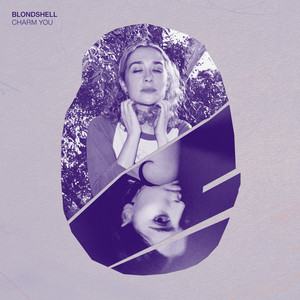 Hypnotically effervescent rising star Blondshell released a cover of Samia’s “Charm You” last year, a part of a reimagining of Samia’s acclaimed sophomore LP Honey. The version is imploring and poutily enamored, the lovelorn best of Blondshell’s vocal range. As the track crescendos, the song’s hook, “I don’t wanna charm you,” gets more and more convincing. Blondshell’s singing drips with as much sugared emotion as it does alt-rock grit, while an infectious guitar hook loops in the background, fading in and out of sparkling electronic riffs. —Miranda Wollen
Hypnotically effervescent rising star Blondshell released a cover of Samia’s “Charm You” last year, a part of a reimagining of Samia’s acclaimed sophomore LP Honey. The version is imploring and poutily enamored, the lovelorn best of Blondshell’s vocal range. As the track crescendos, the song’s hook, “I don’t wanna charm you,” gets more and more convincing. Blondshell’s singing drips with as much sugared emotion as it does alt-rock grit, while an infectious guitar hook loops in the background, fading in and out of sparkling electronic riffs. —Miranda Wollen
30. Phoebe Bridgers: “If We Make It Through December” (2020)
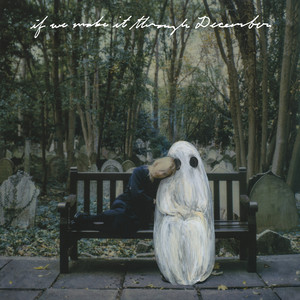 While I do believe that Merle Haggard and the Strangers’ “If We Make It Through December” is one of the greatest Christmas songs of all time, I can’t lie that Phoebe Bridgers makes a good case for the mantle with her rendition of the 1973 song—which she released right before the holidays in 2020. Haggard’s laments of unemployment and loneliness quickly became a touching, sentimental take on a mid-pandemic Christmas. It’s a devastating song, and Bridgers stays true to Haggard’s original theme by remaining hopeful by the end of it. “I shiver when I see the falling snow,” she sings. “If we make it through December, got plans to be in a warmer town come summertime.” Here’s to hoping her narrator made it back to California after all. —Matt Mitchell
While I do believe that Merle Haggard and the Strangers’ “If We Make It Through December” is one of the greatest Christmas songs of all time, I can’t lie that Phoebe Bridgers makes a good case for the mantle with her rendition of the 1973 song—which she released right before the holidays in 2020. Haggard’s laments of unemployment and loneliness quickly became a touching, sentimental take on a mid-pandemic Christmas. It’s a devastating song, and Bridgers stays true to Haggard’s original theme by remaining hopeful by the end of it. “I shiver when I see the falling snow,” she sings. “If we make it through December, got plans to be in a warmer town come summertime.” Here’s to hoping her narrator made it back to California after all. —Matt Mitchell
29. Sharon Jones & The Dap-Kings: “Rescue Me” (2020)
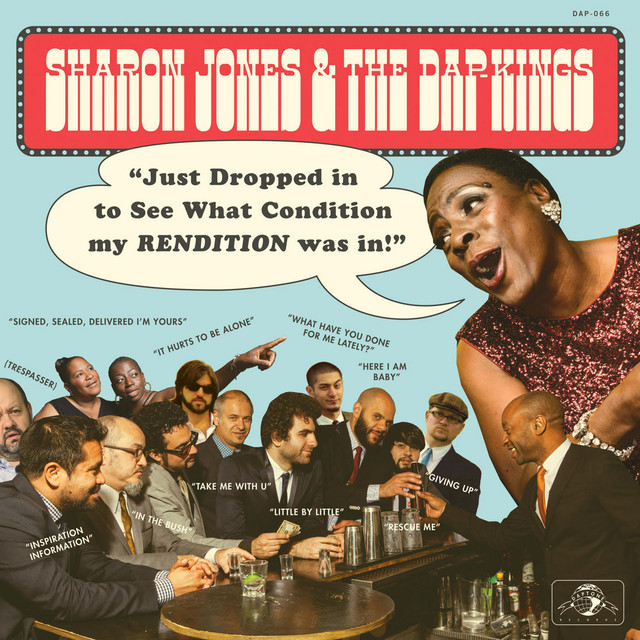 Posthumously released near the end of 2020, nearly four years after her passing, the Sharon Jones & the Dap-Kings album Just Dropped In is littered front to back in soul gems, like Stevie Wonder’s “Signed, Sealed, Delivered I’m Yours,” Dusty Springfield’s “Little by Little” and Janet Jackson’s “What Have You Done for Me Lately?”—but none are quite as magnetic, however, as Jones’s cover of the Raynard Miner and Carl Smith-penned, Fontella Bass-performed “Rescue Me.” Under Jones’s leadership, the song is just as jubilant now, in 2024, as it was in 2020 or 1965. The Dap-Kings deliver a widescreen arrangement, too. Recorded, initially, for use in The Wolf of Wall Street soundtrack but left on the cutting room floor, “Rescue Me” is Sharon Jones’s loving tribute to Bass and the golden years of R&B. —Matt Mitchell
Posthumously released near the end of 2020, nearly four years after her passing, the Sharon Jones & the Dap-Kings album Just Dropped In is littered front to back in soul gems, like Stevie Wonder’s “Signed, Sealed, Delivered I’m Yours,” Dusty Springfield’s “Little by Little” and Janet Jackson’s “What Have You Done for Me Lately?”—but none are quite as magnetic, however, as Jones’s cover of the Raynard Miner and Carl Smith-penned, Fontella Bass-performed “Rescue Me.” Under Jones’s leadership, the song is just as jubilant now, in 2024, as it was in 2020 or 1965. The Dap-Kings deliver a widescreen arrangement, too. Recorded, initially, for use in The Wolf of Wall Street soundtrack but left on the cutting room floor, “Rescue Me” is Sharon Jones’s loving tribute to Bass and the golden years of R&B. —Matt Mitchell
28. Caroline Polacheck: “Breathless” (2020)
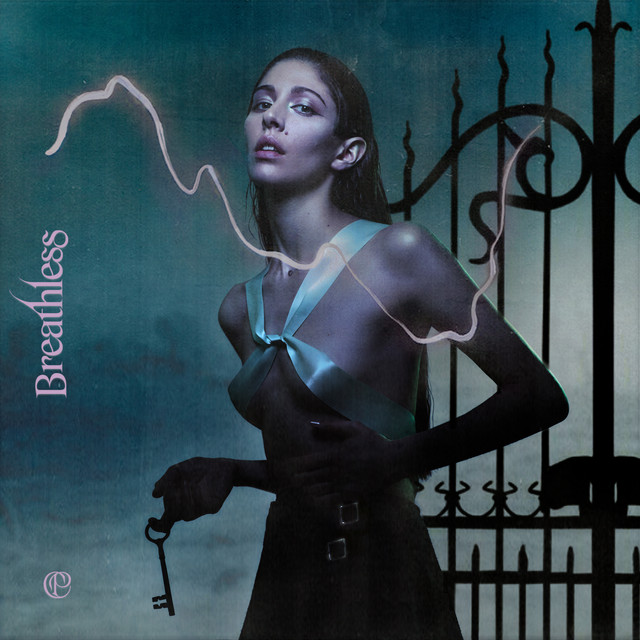 The Corrs’ “Breathless,” off their 2000 album In Blue, sounds like it was sent down from on high. The angelic harmonies and Andrea Corr’s crystalline delivery are positively divine—even if the swaggering guitar solo on the bridge breaks the spell somewhat. But if the Irish family quartet’s original descended from the heavens, then Caroline Polachek’s cover seems to have bubbled up from some strange underwater kingdom. Everything about it sounds submerged: Polachek’s effects-drenched delivery, splashes of piano and silvery waves of synth. The use of vocal samples on Polachek’s version are ingenious, especially her sudden, clipped inhalations that feel quite apt for a song called “Breathless.”—Clare Martin
The Corrs’ “Breathless,” off their 2000 album In Blue, sounds like it was sent down from on high. The angelic harmonies and Andrea Corr’s crystalline delivery are positively divine—even if the swaggering guitar solo on the bridge breaks the spell somewhat. But if the Irish family quartet’s original descended from the heavens, then Caroline Polachek’s cover seems to have bubbled up from some strange underwater kingdom. Everything about it sounds submerged: Polachek’s effects-drenched delivery, splashes of piano and silvery waves of synth. The use of vocal samples on Polachek’s version are ingenious, especially her sudden, clipped inhalations that feel quite apt for a song called “Breathless.”—Clare Martin
27. Nick Shoulders: “Heart of Glass” (2022)
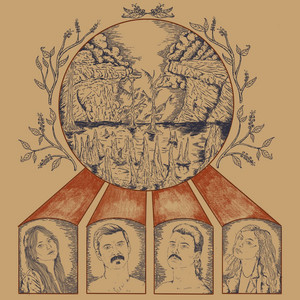 Arkansas country punk Nick Shoulders has covered quite a few artists since bursting into view in 2019: Daniel Johnston (“Tears Stupid Tears”), the Stooges (“No Fun”), Jimmie Rodgers (“Miss the Mississippi and You”) and JR Cheatham (“Blue Endless Highway”). But, none of those performances (as great as they all may be) can contend with Shoulders’s take on Blondie’s all-time hit “Heart of Glass.” If you didn’t know any better, you’d think this was a Nick Shoulders original—as he warps Debbie Harry’s disco optics into a yodeling, singer-songwriter triumph. This is what a cover song does right looks like—existing far beyond its source material and challenging listeners through reinvention. An all-covers album from Shoulders would soar as far as the wind blows. —Matt Mitchell
Arkansas country punk Nick Shoulders has covered quite a few artists since bursting into view in 2019: Daniel Johnston (“Tears Stupid Tears”), the Stooges (“No Fun”), Jimmie Rodgers (“Miss the Mississippi and You”) and JR Cheatham (“Blue Endless Highway”). But, none of those performances (as great as they all may be) can contend with Shoulders’s take on Blondie’s all-time hit “Heart of Glass.” If you didn’t know any better, you’d think this was a Nick Shoulders original—as he warps Debbie Harry’s disco optics into a yodeling, singer-songwriter triumph. This is what a cover song does right looks like—existing far beyond its source material and challenging listeners through reinvention. An all-covers album from Shoulders would soar as far as the wind blows. —Matt Mitchell
26. Cut Worms: “Cigarette Burns Forever” (2023)
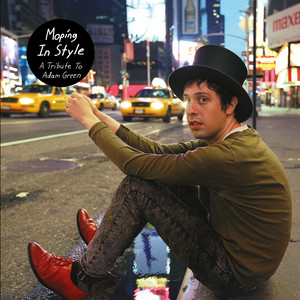 Last year, Capitane Records released Moping in Style, an Adam Green tribute album featuring artists like Joanna Sternberg, Jeffrey Lewis, Jonathan Rado, The Lemon Twigs and Frankie Cosmos paying homage to the anti-folk hero and one-half of the Moldy Peaches. But Cut Worms’ take on “Cigarette Burns Forever” is so good that I don’t even think about Green’s original at all anymore. Max Clarke makes the song so sweetly his own, turning the melody into a wistful, ooing and awing-swing of doo-wop-inspired and indie-motivated rock ‘n’ roll. It’s good and it’s old-fashioned, wolluped into the stratosphere by Green’s idiosyncratic lyrics (“When I lost the magic sandals, I said some things I could not handle”) and Clarke’s penchant for feel-good, retro-fitted melodies. —Matt Mitchell
Last year, Capitane Records released Moping in Style, an Adam Green tribute album featuring artists like Joanna Sternberg, Jeffrey Lewis, Jonathan Rado, The Lemon Twigs and Frankie Cosmos paying homage to the anti-folk hero and one-half of the Moldy Peaches. But Cut Worms’ take on “Cigarette Burns Forever” is so good that I don’t even think about Green’s original at all anymore. Max Clarke makes the song so sweetly his own, turning the melody into a wistful, ooing and awing-swing of doo-wop-inspired and indie-motivated rock ‘n’ roll. It’s good and it’s old-fashioned, wolluped into the stratosphere by Green’s idiosyncratic lyrics (“When I lost the magic sandals, I said some things I could not handle”) and Clarke’s penchant for feel-good, retro-fitted melodies. —Matt Mitchell
25. Lana Del Rey ft. Weyes Blood & Zella Day: “For Free” (2021)
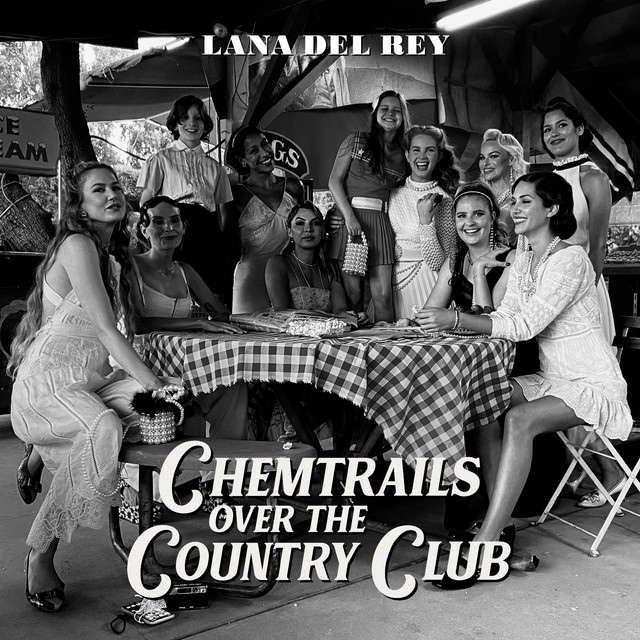 In 2019, Lana Del Rey put a cover of Sublime’s “Doin’ Time” right in the middle of her masterpiece, Norman Fucking Rockwell! Two years later, she took a swing at Joni Mitchell’s Ladies of the Canyon standout, “For Free.” Calling upon Zella Day and Weyes Blood to lend harmonies, Lana pays a faithful homage to Joni, with a piano-and-vocal arrangement that even the Lady of the Canyon would come down into the valley to sing. You can draw a lot of comparisons between Joni and Lana, and “For Free” is now the cord that binds both of their hearts. It’s sublime and transportive. —Matt Mitchell
In 2019, Lana Del Rey put a cover of Sublime’s “Doin’ Time” right in the middle of her masterpiece, Norman Fucking Rockwell! Two years later, she took a swing at Joni Mitchell’s Ladies of the Canyon standout, “For Free.” Calling upon Zella Day and Weyes Blood to lend harmonies, Lana pays a faithful homage to Joni, with a piano-and-vocal arrangement that even the Lady of the Canyon would come down into the valley to sing. You can draw a lot of comparisons between Joni and Lana, and “For Free” is now the cord that binds both of their hearts. It’s sublime and transportive. —Matt Mitchell
24. Cornelius: “Cue” (2023)
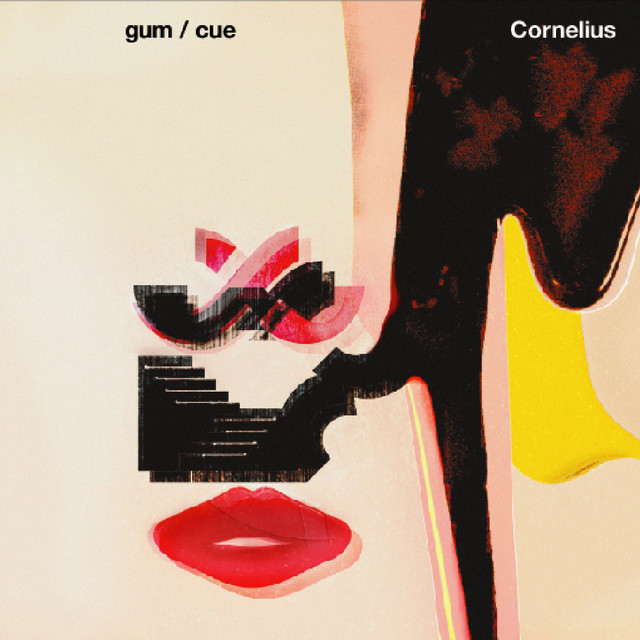 In 2023, the global music community lost two crucial voices in Japanese music with the deaths of Yellow Magic Orchestra founders Ryuichi Sakamoto and Yukihiro Takahashi. No one understands the weight of those losses more than Cornelius, the Japanese artist who has expanded on the pop blueprint that YMO created by adding on elements of shoegaze and psych rock. The appreciation is mutual as Sakamoto and Cornelius have remixed one another’s work, and Takahashi invited Cornelius to be part of his group Metafive. As a nod to his fallen heroes, Cornelius has added a fantastic cover of “Cue,” a track from YMO’s 1981 album BGM to his recent concert setlists—even borrowing the same visual backdrop that Metafive used when performing the song live. This cover finds Cornelius taking the technopop of the original and applies some lovely guitar jangle and a soft lushness you can almost sink into. —Robert Ham
In 2023, the global music community lost two crucial voices in Japanese music with the deaths of Yellow Magic Orchestra founders Ryuichi Sakamoto and Yukihiro Takahashi. No one understands the weight of those losses more than Cornelius, the Japanese artist who has expanded on the pop blueprint that YMO created by adding on elements of shoegaze and psych rock. The appreciation is mutual as Sakamoto and Cornelius have remixed one another’s work, and Takahashi invited Cornelius to be part of his group Metafive. As a nod to his fallen heroes, Cornelius has added a fantastic cover of “Cue,” a track from YMO’s 1981 album BGM to his recent concert setlists—even borrowing the same visual backdrop that Metafive used when performing the song live. This cover finds Cornelius taking the technopop of the original and applies some lovely guitar jangle and a soft lushness you can almost sink into. —Robert Ham
23. Alex Lahey: “This Kiss” (2021)
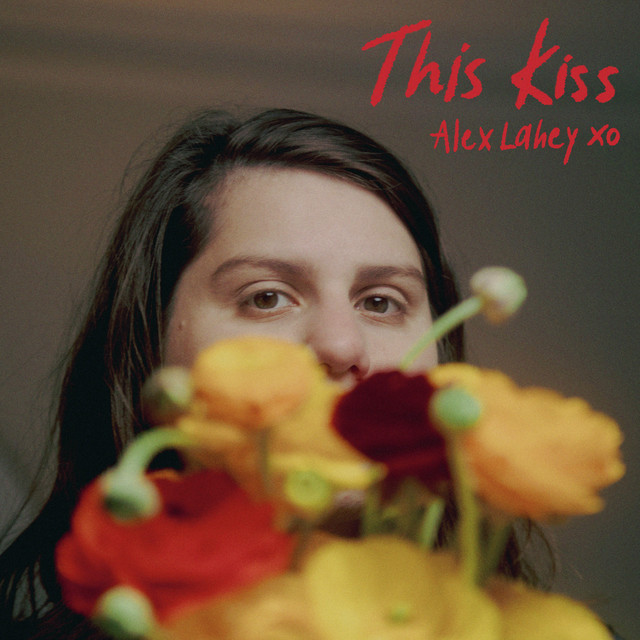 Faithful cover songs are fine and good (there are quite a few on this list!), but I just so deeply love it when an artist can completely transform the alchemy of an already well-loved tune. That’s what Alex Lahey did when she turned Faith Hill’s country hit “This Kiss” into a bruising, high-octane pop-rock delight. Two key-changes, a chorus you can recognize a mile away and harmonies going in every imaginable direction—“This Kiss” ached for transformation, and Lahey shoots herself out of a cannon from the first guitar stroke. At this point, I don’t even think about Hill’s original rendition—to me, “This Kiss” belongs to Alex Lahey now. —Matt Mitchell
Faithful cover songs are fine and good (there are quite a few on this list!), but I just so deeply love it when an artist can completely transform the alchemy of an already well-loved tune. That’s what Alex Lahey did when she turned Faith Hill’s country hit “This Kiss” into a bruising, high-octane pop-rock delight. Two key-changes, a chorus you can recognize a mile away and harmonies going in every imaginable direction—“This Kiss” ached for transformation, and Lahey shoots herself out of a cannon from the first guitar stroke. At this point, I don’t even think about Hill’s original rendition—to me, “This Kiss” belongs to Alex Lahey now. —Matt Mitchell
22. Car Seat Headrest: “Running Up That Hill” (2021)
 This might be a bit of a controversial pick, but hear us out here. Does Car Seat Headrest’s cover of “Running Up That Hill” reach the fever pitch of Kate Bush’s inimitable magnetism and energy? No, of course not—and thankfully, it wasn’t trying to. There are many roads to making a successful cover, and almost none of them include the artist abandoning their strengths and idiosyncrasies in favor of attempting to successfully imitate the original track. This is not Car Seat Headrest covering “Running Up That Hill” so much as it is a snapshot of an imagined reality in which “Running Up That Hill” was a Car Seat Headrest song to begin with. And I, for one, am thoroughly less interested in seeing Toledo’s Kate Bush impersonation than I am watching him make the song his own—which he does, despite his evident faithfulness to and love for its source material.
This might be a bit of a controversial pick, but hear us out here. Does Car Seat Headrest’s cover of “Running Up That Hill” reach the fever pitch of Kate Bush’s inimitable magnetism and energy? No, of course not—and thankfully, it wasn’t trying to. There are many roads to making a successful cover, and almost none of them include the artist abandoning their strengths and idiosyncrasies in favor of attempting to successfully imitate the original track. This is not Car Seat Headrest covering “Running Up That Hill” so much as it is a snapshot of an imagined reality in which “Running Up That Hill” was a Car Seat Headrest song to begin with. And I, for one, am thoroughly less interested in seeing Toledo’s Kate Bush impersonation than I am watching him make the song his own—which he does, despite his evident faithfulness to and love for its source material.
Toledo is all melancholy and monotony at the song’s start, the instrumentation sparse and spacey like an experimental dissection of an ‘80s melody, although classic Toledo bursts of warbling falsetto and backing harmonies make more and more frequent appearances as the song goes on. The first half is quiet and subdued, really bringing the despondency of the lyrics themselves to the forefront, the ethereal wist of Bush’s original replaced with a sort of measured methodicalness that serves to emphasize the inherent fruitlessness of the Sisyphean task at the heart of the song. Partway through, the cover explodes into a full-on discotheque dance track, complete with swaggering riffs, syncopated rhythm, and melodic harmonies. (It’s as Camus once said: imagine Sisyphus disco-ing. Or something like that.) But that initial melancholy never dissipates, it’s just danced through—or, at least, attempted to be danced through. There’s a hint of hopeless desperation to the hollowness of it, even at its most boppy, that feels unique to Car Seat Headrest’s rendition. And this is all that a cover should do: draw out threads from the original track, deepen your understanding of the source material, and force you to approach it from a new angle. It’s not a mimicry; it’s a conversation—and the back-and-forth Toledo has created with Kate Bush is undoubtedly a worthwhile one. —Casey Epstein-Gross
21. Sally Shapiro: “Rent (NICOLAAS Remix)” (2023)
 Released last year was a fantastic cover of Pet Shop Boys’ sleek ode to the sugar daddy relationship “Rent” by Swedish duo Sally Shapiro. Their take on the song is only elevated by this remix from Italians Do It Better artist NICOLAAS. As he has done on his own with other ’80s classics (check out his sexy Eurodisco makeover of “Sussudio”), he applies the perfect glint of neon sleaze and faux fur covered psuedo-elegance to the mix. Play this over a montage of the dining scenes from American Psycho. —Robert Ham
Released last year was a fantastic cover of Pet Shop Boys’ sleek ode to the sugar daddy relationship “Rent” by Swedish duo Sally Shapiro. Their take on the song is only elevated by this remix from Italians Do It Better artist NICOLAAS. As he has done on his own with other ’80s classics (check out his sexy Eurodisco makeover of “Sussudio”), he applies the perfect glint of neon sleaze and faux fur covered psuedo-elegance to the mix. Play this over a montage of the dining scenes from American Psycho. —Robert Ham
20. Samia: “Born on a Train” (2022)
 The Magnetic Fields’ Stephin Merritt is armed with razor-sharp wit that often obfuscates the gooey tenderness at the heart of his songs. That sly, almost deflective mentality is why fans love The Magnetic Fields’ music, including “Born on a Train” off their third album The Charm of the Highway Strip. The chiming synths and rattling, layered percussion bely the sadness at the heart of this rolling stone’s anthem. Alt-pop singer-songwriter Samia brings the song’s inherent melancholy to the fore with her stripped back 2022 cover, which starts off with her sincere, elegant soprano and strummed guitar. The folksy rawness and simplicity make “Born on a Train” sound like an old folk song, something written far longer ago than 1994. As the track progresses and more elements are introduced, she fills the space with a forlorn beauty. And hell, Samia has a sense of humor, too, releasing a sped-up, chipmunk-voiced “Anxiety Version” of the tune alongside her cover. —Clare Martin
The Magnetic Fields’ Stephin Merritt is armed with razor-sharp wit that often obfuscates the gooey tenderness at the heart of his songs. That sly, almost deflective mentality is why fans love The Magnetic Fields’ music, including “Born on a Train” off their third album The Charm of the Highway Strip. The chiming synths and rattling, layered percussion bely the sadness at the heart of this rolling stone’s anthem. Alt-pop singer-songwriter Samia brings the song’s inherent melancholy to the fore with her stripped back 2022 cover, which starts off with her sincere, elegant soprano and strummed guitar. The folksy rawness and simplicity make “Born on a Train” sound like an old folk song, something written far longer ago than 1994. As the track progresses and more elements are introduced, she fills the space with a forlorn beauty. And hell, Samia has a sense of humor, too, releasing a sped-up, chipmunk-voiced “Anxiety Version” of the tune alongside her cover. —Clare Martin
19. Angel Olsen: “Eyes Without a Face” (2021)
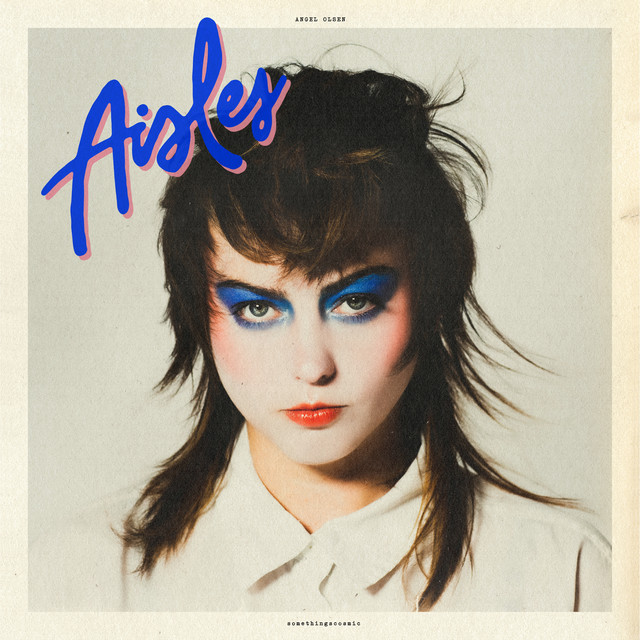 While Angel Olsen certainly doesn’t reinvent the wheel with her 2021 cover of Billy Idol’s breakout hit “Eyes Without a Face,” there’s something indefinable in her rendition that has stuck with me since its release. It’s odd; so much of the instrumentation itself is remarkably similar to Idol’s, as is the vocal approach, but there’s a newness to Olsen’s version that I can’t quite put my finger on—something about it reaches past the original song’s gauzy dreaminess to arrive in a tonal realm that can only be described as haunting. Idol’s lyrics are certainly melancholy as is, but somehow, without tangibly altering all that much, the auditory atmosphere Olsen creates makes that melancholy feel ubiquitous, floating through the space of the song like dust particles in a dark room made visible only by the faint light drifting out from below the door.
While Angel Olsen certainly doesn’t reinvent the wheel with her 2021 cover of Billy Idol’s breakout hit “Eyes Without a Face,” there’s something indefinable in her rendition that has stuck with me since its release. It’s odd; so much of the instrumentation itself is remarkably similar to Idol’s, as is the vocal approach, but there’s a newness to Olsen’s version that I can’t quite put my finger on—something about it reaches past the original song’s gauzy dreaminess to arrive in a tonal realm that can only be described as haunting. Idol’s lyrics are certainly melancholy as is, but somehow, without tangibly altering all that much, the auditory atmosphere Olsen creates makes that melancholy feel ubiquitous, floating through the space of the song like dust particles in a dark room made visible only by the faint light drifting out from below the door.
“Eyes Without a Face” is Olsen at her most Beach-House-esque, languidly textured, made foggy with the haze of reverb. Towards the end, her voice grows heavy with autotune as she repeats the same line over and over, the words themselves boxy and difficult to make out through the mesh of production, as if sense itself is fading into the haze that droops over the song like a weighted blanket. Perhaps it’s the strange robotic tenor of her voice, plaintive, almost naive-sounding; perhaps it’s the rounded distortion hollowing each note into something grainy and vaguely distant; perhaps it’s the production choice of leaning even further into that pillowy, chiffon-curtain gauziness than the original—but regardless of what, exactly, shifts the song into that uniquely spectral realm, Olsen’s cover just goes to show that you don’t need a radical overhaul to make a cover worth listening to. Sometimes, if you’re confident enough in what you’re doing, augmentation can be more than enough. —Casey Epstein-Gross
18. IAN SWEET: “Yellow” (2021)
 Most cover songs come from a place of deep, deep love. I’m not sure there’s a better example of that than IAN SWEET’s cover of “Yellow.” Jil Medford’s favorite band is Coldplay—she’s seen them half-a-dozen times, claims that Parachutes was the first CD she ever rented from the library and, notably, had an incredible link-up with Chris Martin a few years ago. I love Coldplay’s “Yellow” as much as anyone else, but I’d be remiss if I didn’t say that IAN SWEET’s version is better. It’s a love song, it’s a break-up song. It can be whatever you need it to be, so long as you hold it dearly. Medford turns it into a tune that would have fit just fine on her 2021 album Show Me How You Disappear. —Matt Mitchell
Most cover songs come from a place of deep, deep love. I’m not sure there’s a better example of that than IAN SWEET’s cover of “Yellow.” Jil Medford’s favorite band is Coldplay—she’s seen them half-a-dozen times, claims that Parachutes was the first CD she ever rented from the library and, notably, had an incredible link-up with Chris Martin a few years ago. I love Coldplay’s “Yellow” as much as anyone else, but I’d be remiss if I didn’t say that IAN SWEET’s version is better. It’s a love song, it’s a break-up song. It can be whatever you need it to be, so long as you hold it dearly. Medford turns it into a tune that would have fit just fine on her 2021 album Show Me How You Disappear. —Matt Mitchell
17. Kara Jackson: “Right, Wrong or Ready” (2024)
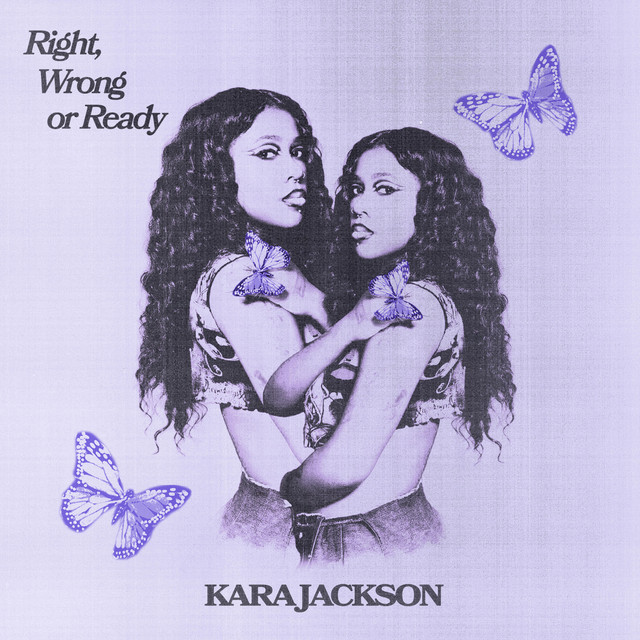 Chicago singer-songwriter Kara Jackson has always excelled at storytelling within her own music. On her latest single, a masterful cover of Karen Dalton’s 1969 folk song “Right, Wrong Or Ready,” Jackson gives us a studio rendition of the tune she regularly opens her live sets with. The subtle power of her voice is striking in the track, and her low, smoky alto meanders in the drawn-out vocal phrases—tenderly filling the space alongside a solo acoustic guitar. Jackson warmly adapts the track into her own, creating a fresh feeling of closeness and intimacy derived from the origina—breathing new life into the classic song and crafting a full-bodied interpretation with a newfound weight to it. —Grace Ann Natanawan
Chicago singer-songwriter Kara Jackson has always excelled at storytelling within her own music. On her latest single, a masterful cover of Karen Dalton’s 1969 folk song “Right, Wrong Or Ready,” Jackson gives us a studio rendition of the tune she regularly opens her live sets with. The subtle power of her voice is striking in the track, and her low, smoky alto meanders in the drawn-out vocal phrases—tenderly filling the space alongside a solo acoustic guitar. Jackson warmly adapts the track into her own, creating a fresh feeling of closeness and intimacy derived from the origina—breathing new life into the classic song and crafting a full-bodied interpretation with a newfound weight to it. —Grace Ann Natanawan
16. Courtney Barnett: “Different Now” (2023)
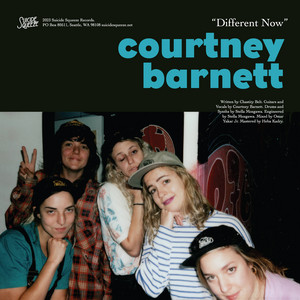 Originally appearing on their 2017 album I Used to Spend So Much Time Alone, “Different Now” remains the one Chastity Belt song I return to more than any other—because it’s just one of the most beautiful songs ever written. The only person in the world who could cover it and do the record justice is Courtney Barnett, who called upon Warpaint’s Stella Mozgawa to play drums and synths. Barnett’s vocals take a subdued, scaled back route, as she morphs the song into an ‘80s pop soundscape—all thanks to Mozgawa’s intricate yet bubbly contributions. This version matches the undeniable catchiness of the original by carving out its own space without stealing the thunder of Chastity Belt’s OG vision. That’s what the best covers do, and Barnett has constructed a perfect homage to the Washington band’s reflective and intimate classic. —Matt Mitchell
Originally appearing on their 2017 album I Used to Spend So Much Time Alone, “Different Now” remains the one Chastity Belt song I return to more than any other—because it’s just one of the most beautiful songs ever written. The only person in the world who could cover it and do the record justice is Courtney Barnett, who called upon Warpaint’s Stella Mozgawa to play drums and synths. Barnett’s vocals take a subdued, scaled back route, as she morphs the song into an ‘80s pop soundscape—all thanks to Mozgawa’s intricate yet bubbly contributions. This version matches the undeniable catchiness of the original by carving out its own space without stealing the thunder of Chastity Belt’s OG vision. That’s what the best covers do, and Barnett has constructed a perfect homage to the Washington band’s reflective and intimate classic. —Matt Mitchell
15. Bill Callahan, Bonnie “Prince” Billy & Matt Sweeney: “OD’d in Denver” (2021)
 In 2021, a couple of Drag City legends teamed up with indie rock’s Forrest Gump to record an austere, ominous cover of a Bocephus tune. Bill Callahan (who formerly went by Smog) and Bonnie “Prince” Billy (aka Will Oldham, who first came to fame with a bunch of great ‘90s albums released under different variations of the name Palace) made the album Blind Date Party together, and roped in Matt Sweeney (of the mid ‘90s Matador band Chavez and the recent supergroup The Hard Quartet, and who has toured as a member of Guided by Voices and played on songs by Cat Power, Bonnie Prince Billy, Run the Jewels, Current 93, Six Organs of Admittance, Johnny Cash, Neil Diamond, the Chicks, and countless others) to play on a cover of Hank Williams Jr.’s 1979 coke bash ballad “OD’d in Denver.” Hank’s original is about the hard life of a touring rock star, kind of like “Turn the Page,” only it treats almost dying between shows as less tragic than not getting the name or number of the girl who hooked him up. It’s surprisingly non-judgmental about heavy drug use, and although there is a line about not doing any more of that coke, there are way more lines about how he wishes he could party with the girl who gave it to him again. So, you know, it’s a perfect Hank Williams Jr. song. Callahan, Oldham and Sweeney don’t mess with that sentiment but they do strip it down into something that takes the “almost dying” part a little more seriously; with hardly more than three spare guitar parts and a ghostly rhythm from a reverb tank, the three turn it into a haunting, almost otherworldly dirge. It finds the weird old folk song at the center of Hank’s story, and if the trio recorded it into the trunk of a car instead of in a studio it would totally sound like something Alan Lomax found in South Carolina in the ‘30s. —Garrett Martin
In 2021, a couple of Drag City legends teamed up with indie rock’s Forrest Gump to record an austere, ominous cover of a Bocephus tune. Bill Callahan (who formerly went by Smog) and Bonnie “Prince” Billy (aka Will Oldham, who first came to fame with a bunch of great ‘90s albums released under different variations of the name Palace) made the album Blind Date Party together, and roped in Matt Sweeney (of the mid ‘90s Matador band Chavez and the recent supergroup The Hard Quartet, and who has toured as a member of Guided by Voices and played on songs by Cat Power, Bonnie Prince Billy, Run the Jewels, Current 93, Six Organs of Admittance, Johnny Cash, Neil Diamond, the Chicks, and countless others) to play on a cover of Hank Williams Jr.’s 1979 coke bash ballad “OD’d in Denver.” Hank’s original is about the hard life of a touring rock star, kind of like “Turn the Page,” only it treats almost dying between shows as less tragic than not getting the name or number of the girl who hooked him up. It’s surprisingly non-judgmental about heavy drug use, and although there is a line about not doing any more of that coke, there are way more lines about how he wishes he could party with the girl who gave it to him again. So, you know, it’s a perfect Hank Williams Jr. song. Callahan, Oldham and Sweeney don’t mess with that sentiment but they do strip it down into something that takes the “almost dying” part a little more seriously; with hardly more than three spare guitar parts and a ghostly rhythm from a reverb tank, the three turn it into a haunting, almost otherworldly dirge. It finds the weird old folk song at the center of Hank’s story, and if the trio recorded it into the trunk of a car instead of in a studio it would totally sound like something Alan Lomax found in South Carolina in the ‘30s. —Garrett Martin
14. jaimie branch ft. Jason Ajemian: “the mountain” (2023)
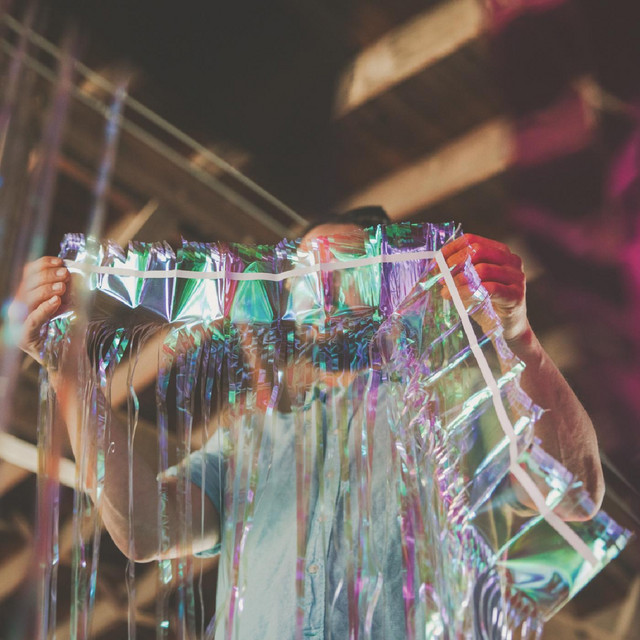 Perhaps the most unique cover song of 2023, “the mountain” finds the late trumpeter jaimie branch riffing on a Meat Puppets song called “Comin’ Down.” It’s one of the sweetest moments on branch’s final LP, Fly or Die Fly or Die Fly or Die ((World War)), and it is much more like a folk hymnal than it is a jazz composition. branch and her collaborator Jason Ajemian retain the country tint of the Meat Puppets’ loose and earthy original jig. “I have seen the information on the lighter side of dumbness,” branch and Ajemian harmonize. “I have heard the new statistics in the stompin’ on the ground. It’s one of the only covers from last year that, very likely, outshined its source material in full. —Matt Mitchell
Perhaps the most unique cover song of 2023, “the mountain” finds the late trumpeter jaimie branch riffing on a Meat Puppets song called “Comin’ Down.” It’s one of the sweetest moments on branch’s final LP, Fly or Die Fly or Die Fly or Die ((World War)), and it is much more like a folk hymnal than it is a jazz composition. branch and her collaborator Jason Ajemian retain the country tint of the Meat Puppets’ loose and earthy original jig. “I have seen the information on the lighter side of dumbness,” branch and Ajemian harmonize. “I have heard the new statistics in the stompin’ on the ground. It’s one of the only covers from last year that, very likely, outshined its source material in full. —Matt Mitchell
13. Advance Base: “Sweet Old World” (2021)
 Back in 2021, Advance Base—the project of Owen Ashworth—dropped an all-covers album called Wall of Tears & Other Songs I Didn’t Write, which featured songs by Wednesday, John Prine, Gia Margaret and K.T. Oslin. I return to this project often, if only for Ashworth’s rendition of Lucinda Williams’s 1992 darling “Sweet Old World.” Ashworth’s use of keyboards, samplers and a drum machine turns the country track into something far more spectacular and far more heartbreaking. “Millions of us in love, promises made good,” Ashworth sings. “Your own flesh and blood: looking for some truth, dancing with no shoes.” On an album that’s Advance Base’s “ode to karaoke bars and karaoke singers,” “Sweet Old World” transforms from a bar singalong to an isolated, shadowy lament. Few songs, cover or not, are this beautiful. —Matt Mitchell
Back in 2021, Advance Base—the project of Owen Ashworth—dropped an all-covers album called Wall of Tears & Other Songs I Didn’t Write, which featured songs by Wednesday, John Prine, Gia Margaret and K.T. Oslin. I return to this project often, if only for Ashworth’s rendition of Lucinda Williams’s 1992 darling “Sweet Old World.” Ashworth’s use of keyboards, samplers and a drum machine turns the country track into something far more spectacular and far more heartbreaking. “Millions of us in love, promises made good,” Ashworth sings. “Your own flesh and blood: looking for some truth, dancing with no shoes.” On an album that’s Advance Base’s “ode to karaoke bars and karaoke singers,” “Sweet Old World” transforms from a bar singalong to an isolated, shadowy lament. Few songs, cover or not, are this beautiful. —Matt Mitchell
12. Al Green: “Perfect Day” (2023)
 Al Green returned to the music world after a five-year hiatus with a cover of Lou Reed’s opus “Perfect Day,” bringing his buttery vocals to the sweet love story and giving it a modern, soulful gloss. The song translates beautifully into the world of gospel and R&B, with church organs and a choir-backing lifting the arrangement to a number that would’ve had a place in any old-school crooner’s repertoire. Green stayed true to Reed’s tune while adding his own “sauce and style,” turning a jazz-pop ballad into a piece of soul magic. Green’s voice adds an open excitement and candid emotion into the song, exercises that Reed chose to play down in his verses, switching around the violins and guitar thrums to match his silky, generations-spanning style. —Miranda Wollen
Al Green returned to the music world after a five-year hiatus with a cover of Lou Reed’s opus “Perfect Day,” bringing his buttery vocals to the sweet love story and giving it a modern, soulful gloss. The song translates beautifully into the world of gospel and R&B, with church organs and a choir-backing lifting the arrangement to a number that would’ve had a place in any old-school crooner’s repertoire. Green stayed true to Reed’s tune while adding his own “sauce and style,” turning a jazz-pop ballad into a piece of soul magic. Green’s voice adds an open excitement and candid emotion into the song, exercises that Reed chose to play down in his verses, switching around the violins and guitar thrums to match his silky, generations-spanning style. —Miranda Wollen
11. Sister Ray: “Up to My Neck in You” (2022)
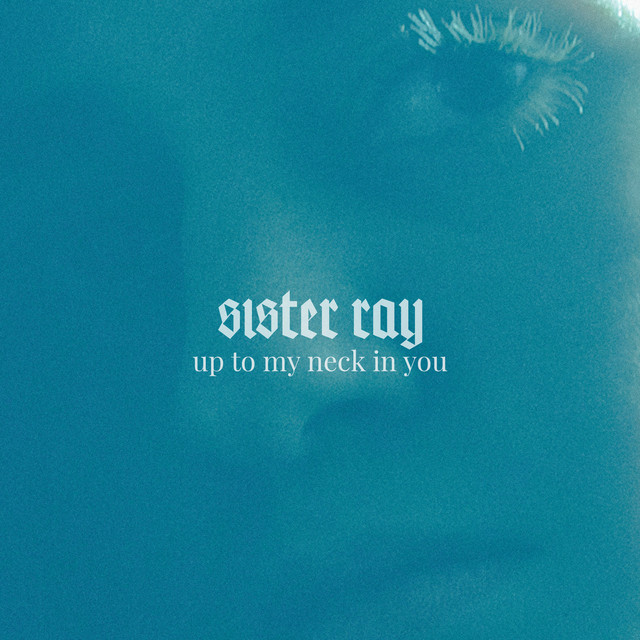 One of my favorite bands ever is AC/DC, so hearing Toronto singer-songwriter Sister Ray turn their Powerage song “Up to My Neck in You” into a gruelling, emotional tempest is one of my favorite releases of the decade so far, period. “For most of my life, I’ve been a fool,” Ella Coyes sings. “And you know what a fool can do. You came along when I needed you, now I’m up to my neck in you.” The pleasure remains pleasure, but with a tinge of anguish. Coyes takes Bon Scott, Angus and Malcolm Young’s songwriting and completely submerges it in grief. A song about sex is now a song about intimacy, about closeness. It’s been completely rewritten, and miraculously so. —Matt Mitchell
One of my favorite bands ever is AC/DC, so hearing Toronto singer-songwriter Sister Ray turn their Powerage song “Up to My Neck in You” into a gruelling, emotional tempest is one of my favorite releases of the decade so far, period. “For most of my life, I’ve been a fool,” Ella Coyes sings. “And you know what a fool can do. You came along when I needed you, now I’m up to my neck in you.” The pleasure remains pleasure, but with a tinge of anguish. Coyes takes Bon Scott, Angus and Malcolm Young’s songwriting and completely submerges it in grief. A song about sex is now a song about intimacy, about closeness. It’s been completely rewritten, and miraculously so. —Matt Mitchell
10. Bedouine, Hurray for the Riff Raff & Waxahatchee: “Thirteen” (2020)
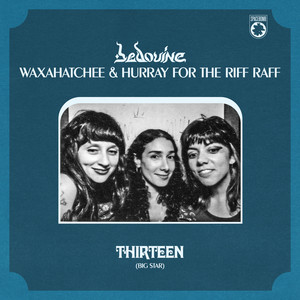 Alright, this one just wasn’t fair. “Thirteen” is such a breathtakingly beautiful ode to adolescence that I’m not even sure a bad cover is even possible, but it definitely isn’t when the artists covering are Waxahatchee, Bedouine and Hurray For The Riff Raff. Released in 2020, this trio effort slows Big Star’s “Thirteen” into a waltz, allowing each musician to make the most of their verses and allowing the ethereal harmonies enough room to soar into the stratosphere. Simple and pared down, the instrumentation remains much the same as the original, the easy strum of a guitar the main event—aside from the three indie folk powerhouses, that is. While this cover doesn’t change very much of the original (as they say, if it ain’t broke!), it’s honestly just so gorgeous, moving and heartfelt that it’s difficult to imagine not granting it a spot high on this list. —Casey Epstein-Gross
Alright, this one just wasn’t fair. “Thirteen” is such a breathtakingly beautiful ode to adolescence that I’m not even sure a bad cover is even possible, but it definitely isn’t when the artists covering are Waxahatchee, Bedouine and Hurray For The Riff Raff. Released in 2020, this trio effort slows Big Star’s “Thirteen” into a waltz, allowing each musician to make the most of their verses and allowing the ethereal harmonies enough room to soar into the stratosphere. Simple and pared down, the instrumentation remains much the same as the original, the easy strum of a guitar the main event—aside from the three indie folk powerhouses, that is. While this cover doesn’t change very much of the original (as they say, if it ain’t broke!), it’s honestly just so gorgeous, moving and heartfelt that it’s difficult to imagine not granting it a spot high on this list. —Casey Epstein-Gross
9. Pigs Pigs Pigs Pigs Pigs Pigs Pigs ft. The Lovely Eggs: “Hot Stuff” (2021)
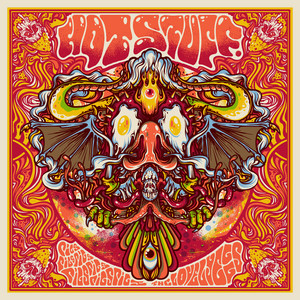 In an effort to raise money for a Sunderland record store called Pop Recs, whose owner Dave Harper (drummer in Frankie & The Heartstrings) passed away in August 2021, Newcastle rock group Pigs Pigs Pigs Pigs Pigs Pigs Pigs covered Donna Summer’s disco classic “Hot Stuff” and completely revamped it into their own sludgy, apocalyptic speciality. Pigs x7 usher in guest vocals from Lancaster duo the Lovely Eggs and, using their one-riff formula, turn an untouchable song into a heavy, head-splitting rebirth. Simultaneously, it’s an homage to and a complete teardown of the simplicity of Donna Summer’s essential original. What a towering, enormous song. —Matt Mitchell
In an effort to raise money for a Sunderland record store called Pop Recs, whose owner Dave Harper (drummer in Frankie & The Heartstrings) passed away in August 2021, Newcastle rock group Pigs Pigs Pigs Pigs Pigs Pigs Pigs covered Donna Summer’s disco classic “Hot Stuff” and completely revamped it into their own sludgy, apocalyptic speciality. Pigs x7 usher in guest vocals from Lancaster duo the Lovely Eggs and, using their one-riff formula, turn an untouchable song into a heavy, head-splitting rebirth. Simultaneously, it’s an homage to and a complete teardown of the simplicity of Donna Summer’s essential original. What a towering, enormous song. —Matt Mitchell
8. Iron & Wine: “Never Meant” (2024)
 After returning from a trip back to Mike Kinsella’s (and also my) hometown of Chicago, I have been spiritually re-tuned with the sights and sounds that ultimately made emo music what it is today. The grazing melancholia of American Football’s 1999 self-titled debut is being put into the hands of some of the brightest musicians working today via a covers album, and what better way to introduce the rehashing of this classic album than Iron & Wine covering its most iconic track? The approach Sam Beam takes with “Never Meant” re-contextualizes it into what feels like an apology—as opposed to a eulogy for what could have been. The song’s infamous guitar lick is largely abandoned, save for nods at the beginning and end of the track, as the outro finds it blended with Beam’s lush vocal harmonies, layered acoustic guitars and a gentle, arpeggiating synth. It sounds like something straight out of Bon Iver’s self-titled record, and Iron & Wine’s take truly does so much justice to a song so quintessential to what emo has become. —Leah Weinstein
After returning from a trip back to Mike Kinsella’s (and also my) hometown of Chicago, I have been spiritually re-tuned with the sights and sounds that ultimately made emo music what it is today. The grazing melancholia of American Football’s 1999 self-titled debut is being put into the hands of some of the brightest musicians working today via a covers album, and what better way to introduce the rehashing of this classic album than Iron & Wine covering its most iconic track? The approach Sam Beam takes with “Never Meant” re-contextualizes it into what feels like an apology—as opposed to a eulogy for what could have been. The song’s infamous guitar lick is largely abandoned, save for nods at the beginning and end of the track, as the outro finds it blended with Beam’s lush vocal harmonies, layered acoustic guitars and a gentle, arpeggiating synth. It sounds like something straight out of Bon Iver’s self-titled record, and Iron & Wine’s take truly does so much justice to a song so quintessential to what emo has become. —Leah Weinstein
7. Julia Jacklin: “Shivers” (2023)
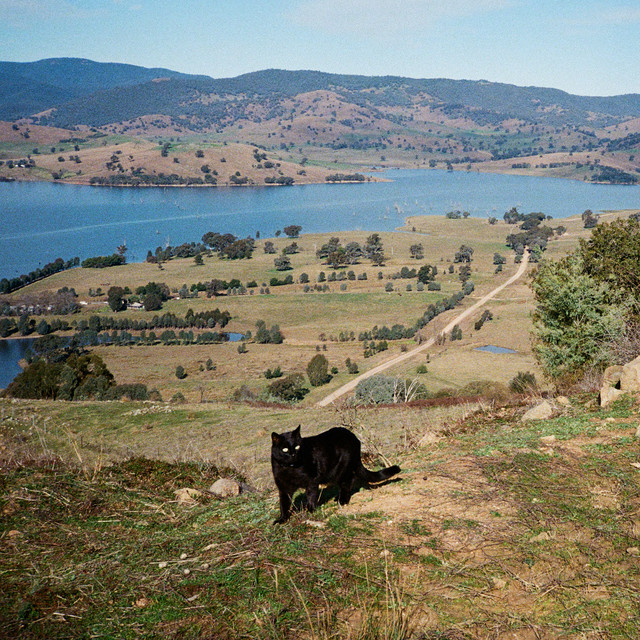 The first lines in Julia Jacklin’s cover of “Shivers” hit you like a truck: “I’ve been contemplating suicide / But it doesn’t really suit my style / So I think I’ll just act bored instead,” she croons, in her shimmering warble. Jacklin’s rendition, part of a tribute to late producer—and the song’s original recorder—Tony Cohen, highlights the desperate enamoredness of young love. As the track swells into a power ballad, a marching combination of piano and drums add a determined militance to Jacklin’s lilt. It’s an homage to her musical roots, and a cacophony of big emotion and sonic perfection. —Miranda Wollen
The first lines in Julia Jacklin’s cover of “Shivers” hit you like a truck: “I’ve been contemplating suicide / But it doesn’t really suit my style / So I think I’ll just act bored instead,” she croons, in her shimmering warble. Jacklin’s rendition, part of a tribute to late producer—and the song’s original recorder—Tony Cohen, highlights the desperate enamoredness of young love. As the track swells into a power ballad, a marching combination of piano and drums add a determined militance to Jacklin’s lilt. It’s an homage to her musical roots, and a cacophony of big emotion and sonic perfection. —Miranda Wollen
6. Confidence Man: “Heaven” (2022)
 Have you ever met a family where the youngest child doesn’t really resemble either of the parents, but is the spitting image of their older sibling? That’s essentially what happened with Aussie dance-pop group Confidence Man’s 2022 cover of “Heaven.” They didn’t harken back to the stadium guitars and starry-eyed earnestness of Bryan Adams’ original, which was recorded in 1983 and later appeared on his 1984 record Reckless. Instead, they drew inspiration from DJ Sammy and Yanou’s version, which featured Dutch singer Do’s sugary, bubblegum pop vocals over an unrepentant Eurodance beat. But while Do brings a honeyed sound to the reimagined track, Con Man’s Janet Planet and Sugar Bones are a sweet-and-sour blast: Planet’s sky-high vocals almost disappear into the ether before Bones hops in with Beastie Boys bombast. Instrumentalists Clarence McGuffie and Reggie Goodchild bring extra heft to the synths and drumming here, which feel more substantial than the production on DJ Sammy’s rendition. Confidence Man’s cover is, in short, heaven. —Clare Martin
Have you ever met a family where the youngest child doesn’t really resemble either of the parents, but is the spitting image of their older sibling? That’s essentially what happened with Aussie dance-pop group Confidence Man’s 2022 cover of “Heaven.” They didn’t harken back to the stadium guitars and starry-eyed earnestness of Bryan Adams’ original, which was recorded in 1983 and later appeared on his 1984 record Reckless. Instead, they drew inspiration from DJ Sammy and Yanou’s version, which featured Dutch singer Do’s sugary, bubblegum pop vocals over an unrepentant Eurodance beat. But while Do brings a honeyed sound to the reimagined track, Con Man’s Janet Planet and Sugar Bones are a sweet-and-sour blast: Planet’s sky-high vocals almost disappear into the ether before Bones hops in with Beastie Boys bombast. Instrumentalists Clarence McGuffie and Reggie Goodchild bring extra heft to the synths and drumming here, which feel more substantial than the production on DJ Sammy’s rendition. Confidence Man’s cover is, in short, heaven. —Clare Martin
5. Merce Lemon: “I See a Darkness” (2024)
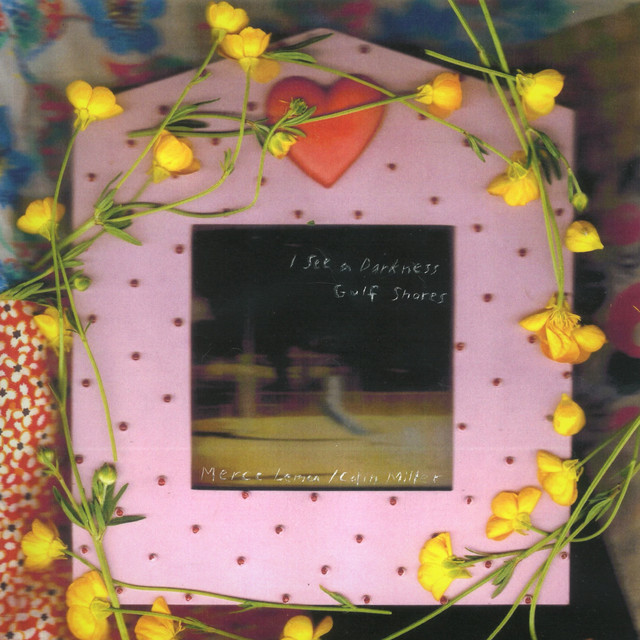 Released as a double-single with “Gulf Shores” in January 2024, Merce Lemon and her band—Reid Magette, Pat Coyle, Ben Brody and Spencer Smith—teamed up with Colin Miller and Alex Farrar to cover Bonnie “Prince” Billy’s 1999 song “I See a Darkness.” It’s my belief that Will Oldham’s original take on the song is one of the best inclusions in modern music. But, Merce and her band completely rewire the emotional bandwidth of Oldham’s words. “Well I hope that someday, buddy, we have peace in our lives—together or apart, alone or with our wives / Then we can stop our whoring and pull the smiles inside and light it up forever and never go to sleep” are lyrics that sounded just as incredibly devastating passing through Oldham’s lips as Bonnie “Prince” Billy as they did crawling across the cobblestone of Johnny Cash’s shredded voice, the kind of lines that evoke the strange, pervasive antiquity of the Appalachia they were written in. And those lyrics sound permanently overwhelming when Merce Lemon sings them. —Matt Mitchell
Released as a double-single with “Gulf Shores” in January 2024, Merce Lemon and her band—Reid Magette, Pat Coyle, Ben Brody and Spencer Smith—teamed up with Colin Miller and Alex Farrar to cover Bonnie “Prince” Billy’s 1999 song “I See a Darkness.” It’s my belief that Will Oldham’s original take on the song is one of the best inclusions in modern music. But, Merce and her band completely rewire the emotional bandwidth of Oldham’s words. “Well I hope that someday, buddy, we have peace in our lives—together or apart, alone or with our wives / Then we can stop our whoring and pull the smiles inside and light it up forever and never go to sleep” are lyrics that sounded just as incredibly devastating passing through Oldham’s lips as Bonnie “Prince” Billy as they did crawling across the cobblestone of Johnny Cash’s shredded voice, the kind of lines that evoke the strange, pervasive antiquity of the Appalachia they were written in. And those lyrics sound permanently overwhelming when Merce Lemon sings them. —Matt Mitchell
4. Wednesday: “She’s Actin’ Single (I’m Drinkin’ Double)” (2022)
 Wednesday’s 2022 cover of Gary Stewart’s “She’s Actin’ Single” does more than just reprise the 1975 country classic, choosing to instead both ask and answer the age-old question: “What if Gary Stewart was, like, really into the 2024 quasi-shoegaze DIY scene?” Gone are the tell-tale twangs of Stewart’s honky-tonk jam; Wednesday’s rendition is all guitar fuzz and warm distortion, cut through only by the freshness and clarity of Karly Hartzman’s vocals. The verses maintain a brighter, simpler sound, but once the chorus hits, all bets are off; the grain of distorted guitars lowly wailing sets the stage for Hartzman’s full-chested crooning, the despair of betrayal made tangible by the hurt in her voice, which manages to pierce through the hazy drone underneath and straight into the heart of the listener. It’s a completely original take on “She’s Actin’ Single,” transforming the ‘70s country hit into a song a septum-pierced barista at an independent coffee shop would play on repeat—and it, unsurprisingly, sounds pretty great live. —Casey Epstein-Gross
Wednesday’s 2022 cover of Gary Stewart’s “She’s Actin’ Single” does more than just reprise the 1975 country classic, choosing to instead both ask and answer the age-old question: “What if Gary Stewart was, like, really into the 2024 quasi-shoegaze DIY scene?” Gone are the tell-tale twangs of Stewart’s honky-tonk jam; Wednesday’s rendition is all guitar fuzz and warm distortion, cut through only by the freshness and clarity of Karly Hartzman’s vocals. The verses maintain a brighter, simpler sound, but once the chorus hits, all bets are off; the grain of distorted guitars lowly wailing sets the stage for Hartzman’s full-chested crooning, the despair of betrayal made tangible by the hurt in her voice, which manages to pierce through the hazy drone underneath and straight into the heart of the listener. It’s a completely original take on “She’s Actin’ Single,” transforming the ‘70s country hit into a song a septum-pierced barista at an independent coffee shop would play on repeat—and it, unsurprisingly, sounds pretty great live. —Casey Epstein-Gross
3. Colter Wall: “Cowpoke” (2020)
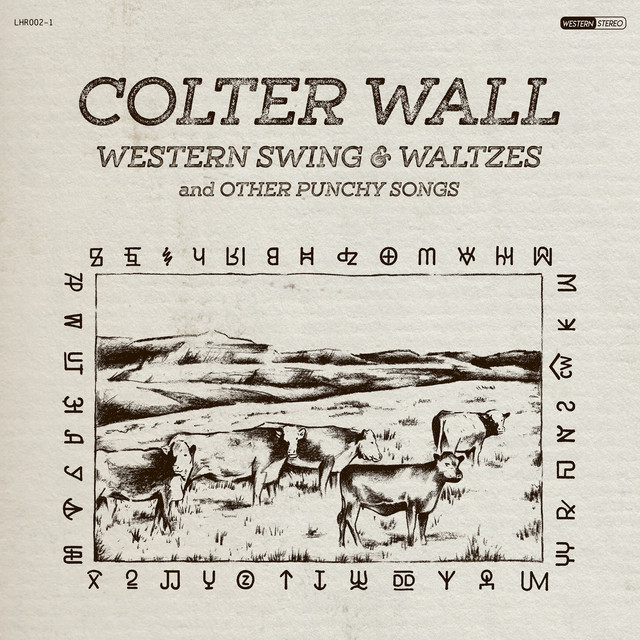 I’ve listened to Colter Wall’s “Cowpoke” more than any other cover song ever. It’s made it onto my Apple Music Replay three out of the last four years, and I’m sure it’ll make it onto one of those playlists again before 2030 comes into view. Originally written by Stan Jones, “Cowpoke” is one of those tunes that you can’t help but crack a smile while listening to. Featuring a splendid, crying pedal steel and Colter’s deep, cigarette-burned vocal that, in an instant, can warp into a sugar-sweet yodel, “Cowpoke” isn’t just one of the best cover songs of this generation—it’s one of the greatest covers of all time, especially in country music. So rarely do you see modern artists dusting off a genre waltz and permanently entrenching it in the taste of a brand new zeitgeist, but Colter Wall’s “Cowpoke” has found virality on YouTube and TikTok since coming out four years ago. Give it another four years and it’ll certainly be remembered as one of the most critical country releases of the 2020s. —Matt Mitchell
I’ve listened to Colter Wall’s “Cowpoke” more than any other cover song ever. It’s made it onto my Apple Music Replay three out of the last four years, and I’m sure it’ll make it onto one of those playlists again before 2030 comes into view. Originally written by Stan Jones, “Cowpoke” is one of those tunes that you can’t help but crack a smile while listening to. Featuring a splendid, crying pedal steel and Colter’s deep, cigarette-burned vocal that, in an instant, can warp into a sugar-sweet yodel, “Cowpoke” isn’t just one of the best cover songs of this generation—it’s one of the greatest covers of all time, especially in country music. So rarely do you see modern artists dusting off a genre waltz and permanently entrenching it in the taste of a brand new zeitgeist, but Colter Wall’s “Cowpoke” has found virality on YouTube and TikTok since coming out four years ago. Give it another four years and it’ll certainly be remembered as one of the most critical country releases of the 2020s. —Matt Mitchell
2. Ibibio Sound Machine: “Heroes” (2022)
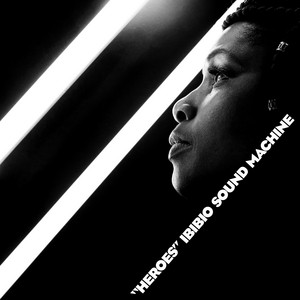 Very, very, very rarely has David Bowie ever been one-upped on his own song. Mott the Hoople and Nirvana were, for a long time, the only artists who could claim that accolade—until Ibibio Sound Machine covered “Heroes” in 2022, that is. After releasing her Hot Chip-produced gem Electricity, she affixed her gaze onto Ziggy’s 1977 classic and ran away with it. The London-based dance collective, led by the Nigerian-born singer Eno Williams, turned the British anthem inside-out two years ago, remaking it into club-ready, nu-disco bombast fit for a new generation. The rock heroics of Bowie’s original fade away, as Williams and her crew substitute the pageantry for fleet-footed rhythms. It’s better than most of the iterations that have come before it, except for Philip Glass’s symphonic reworking. I’d say the Ibibio Sound Machine is in pretty good company there. The everlasting promise of their vision for “Heroes” confirms it. —Matt Mitchell
Very, very, very rarely has David Bowie ever been one-upped on his own song. Mott the Hoople and Nirvana were, for a long time, the only artists who could claim that accolade—until Ibibio Sound Machine covered “Heroes” in 2022, that is. After releasing her Hot Chip-produced gem Electricity, she affixed her gaze onto Ziggy’s 1977 classic and ran away with it. The London-based dance collective, led by the Nigerian-born singer Eno Williams, turned the British anthem inside-out two years ago, remaking it into club-ready, nu-disco bombast fit for a new generation. The rock heroics of Bowie’s original fade away, as Williams and her crew substitute the pageantry for fleet-footed rhythms. It’s better than most of the iterations that have come before it, except for Philip Glass’s symphonic reworking. I’d say the Ibibio Sound Machine is in pretty good company there. The everlasting promise of their vision for “Heroes” confirms it. —Matt Mitchell
1. Sufjan Stevens: “There’s a World” (2023)
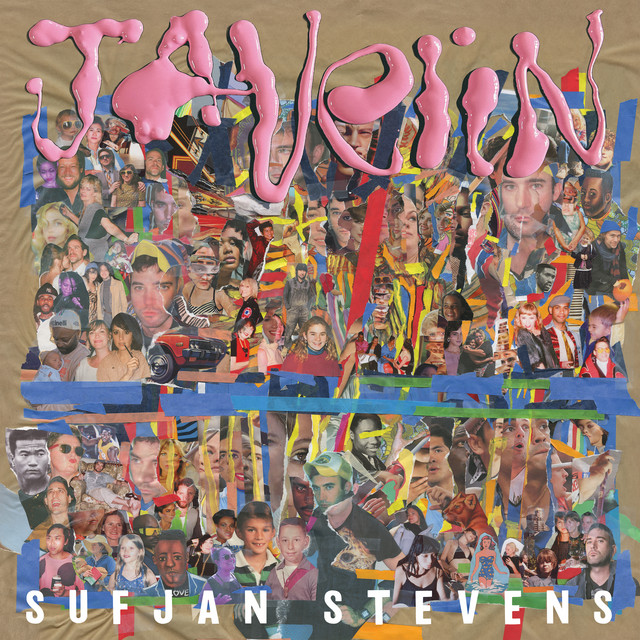 Originally track seven on Neil Young’s 1972 album Harvest, “There’s a World” is overpowered by the sheer ferocity of songs like “Heart of Gold,” “Old Man” and “The Needle and the Damage Done.” It’s maybe the weakest song on the record, depending on who you ask. But, as a closing track on Sufjan Stevens’s recent album Javelin, it’s a perfect, heartbreaking coda enveloped by a delicate, soaring choir melody. “There’s a world you’re living in, no one else has your part,” Stevens sings in a whisper. “All God’s children in the wind, take it in and blow real hard.” Stevens dedicated the record to his late, longtime partner Evans Richardson, and “There’s a World,” in that very moment, transforms into a portrait of afterlife and eternal togetherness. When he echoes out the lines “We are leaving, we are gone, come with us to all alone,” there’s not a dry eye in the building. This is Sufjan Stevens’s song now, and may it forever make us weep uncontrollably. —Matt Mitchell
Originally track seven on Neil Young’s 1972 album Harvest, “There’s a World” is overpowered by the sheer ferocity of songs like “Heart of Gold,” “Old Man” and “The Needle and the Damage Done.” It’s maybe the weakest song on the record, depending on who you ask. But, as a closing track on Sufjan Stevens’s recent album Javelin, it’s a perfect, heartbreaking coda enveloped by a delicate, soaring choir melody. “There’s a world you’re living in, no one else has your part,” Stevens sings in a whisper. “All God’s children in the wind, take it in and blow real hard.” Stevens dedicated the record to his late, longtime partner Evans Richardson, and “There’s a World,” in that very moment, transforms into a portrait of afterlife and eternal togetherness. When he echoes out the lines “We are leaving, we are gone, come with us to all alone,” there’s not a dry eye in the building. This is Sufjan Stevens’s song now, and may it forever make us weep uncontrollably. —Matt Mitchell






































